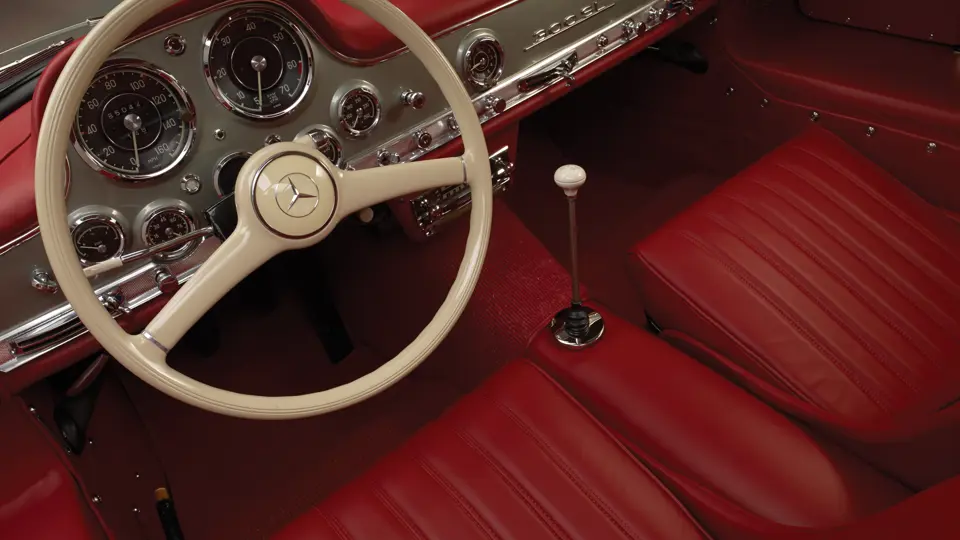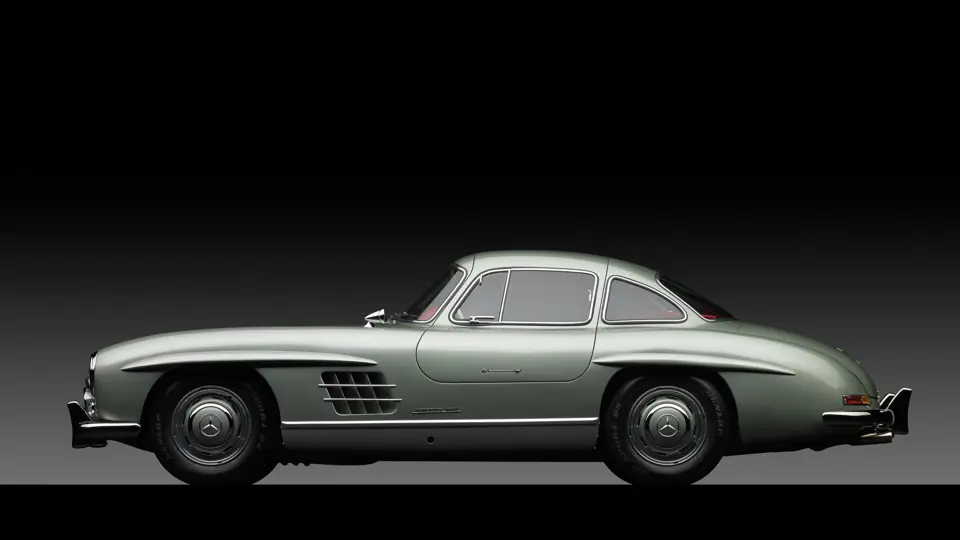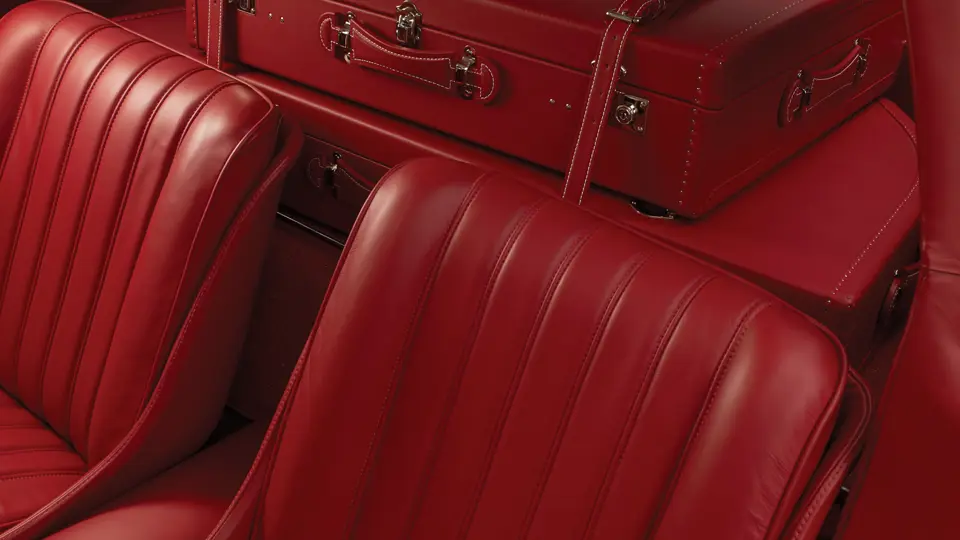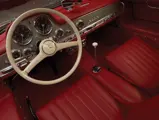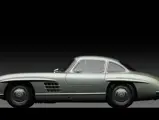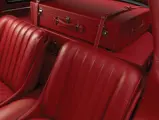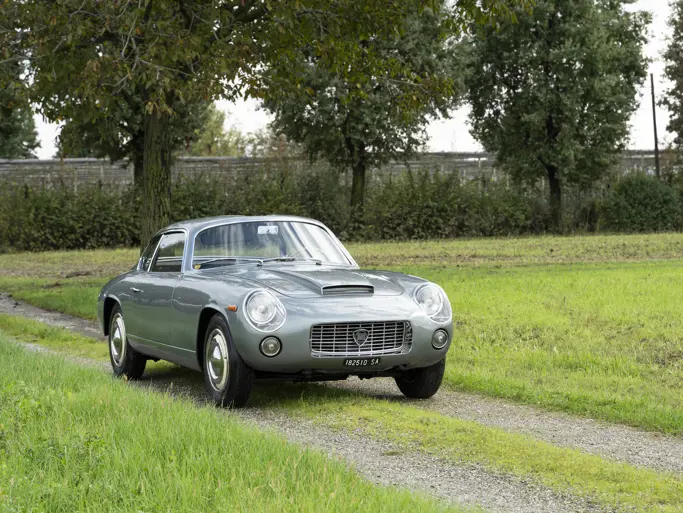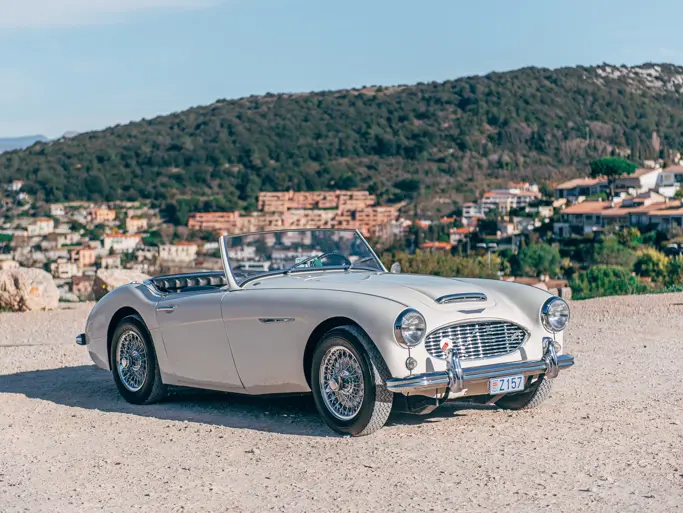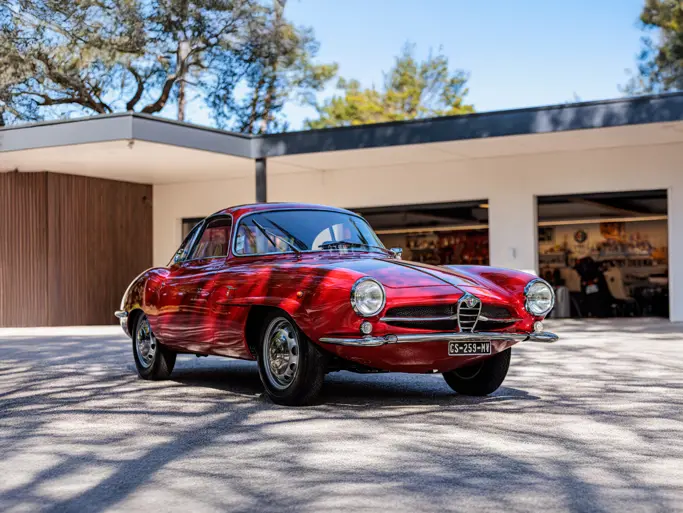While the design for some of the most beautiful cars begins on a drawing board, or a sketch pad, or even a napkin, the Mercedes-Benz 300 SL was born on the race track. That it turned out so beautifully, with epic curves that came to define the European sports car to a generation of enthusiasts, was happenstance.
Its design was pure mechanical genius; it was derived from racing experience with the original 300 SL racing car, which had claimed 2nd in the Mille Miglia long-distance road race in Northern Italy, 1st and 2nd at the 24 Hours of Le Mans race, and an astonishing 1-2-3-4 victory at the Nürburgring in Germany, among other successes. It was smooth and sleek, with a flowing snout and handsomely rounded tail. Under the hood was a powerful overhead-cam straight six that was inclined to the side to lower the lines of the front of the car, and below that, there was fully independent suspension. Most important to the design, however, was a welded, tubular-steel, space-frame chassis, which master engineer Rudolf Uhlenhaut had created to both save weight and strengthen the car. There was one small problem: in order to function properly, the chassis rails passed through where the doors would ordinarily be. Then again, that was no problem for Daimler-Benz’s talented engineers, who simply hinged the doors at the roofline, to have them open upward.
It was an idea, as one historian would later point out, that only worked once, and only because it occurred on the 300 SL was it an idea that was meant to happen. Like Gordon Buehrig punching holes through the Cord 810’s hubcaps to ventilate the brakes, the 300 SL’s “gullwing” doors were born of necessity. They just happen to be eye-catching and beautiful. Raising a 300 SL’s wing revealed an interior with two full, snug seats behind a tilt steering wheel, with the options of a radio and a set of fitted luggage aft.
Not just beautiful in design, the Gullwing was capable of an incredible 161 mph. It was so far ahead of its time that it would take a decade for any other manufacturer to build anything that could equal it. The 300 SL is, without argument, the most important Mercedes-Benz ever built.
The car offered here was originally delivered through the Frank Lloyd Wright-designed showrooms of Max Hoffman, here in New York City. It was Hoffman who had cajoled Daimler-Benz into building a production 300 SL in the first place, and he happily dealt the cars to a satisfied clientele from coast to coast, ministering to the faithful who had begged for performance and luxury in equal measure. More than 1,000 of the 1,400 Mercedes-Benz 300 SL Coupes built were delivered from Park Avenue, with this car being sold to William D. Brown, of Tarzana, California.
Special-ordered by Mr. Brown, the car is one of 19 ordered in this striking shade, Light Green Metallic, and it was likely one of still fewer with full red leather upholstery. The paint color is unusual, but more importantly, it is beautiful, and it has a way of shifting in the light that is entrancing; depending on the light, it appears white, pale green, or silver. Standard wheels were specified, along with U.S.-specification instruments, sealed-beam headlamps, bumper guards, and a windshield washer.
Since that time, the car passed through only three known owners before joining the prominent private collection from which it is now presented.
In more recent care, it was professionally refinished in the original Light Green Metallic, and new red leather upholstery, in the original pattern and grain as in 1955, was installed. Comforts and conveniences within include a radio, a full set of factory-style fitted luggage, and a tool kit.
Importantly, the 300 SL has never been fully taken apart mechanically, because it has never required it. Instead, it has been lovingly maintained for virtually its entire life, as documented by a collection of original service records that accompany the car, along with its original owner’s instruction manual, parts catalogue, service booklet, and yellow California license plate. Mileage since new is still around 65,000. The original chassis pans are still intact and in excellent condition. The current owner reports that the car runs and drives well, with dialed-in suspension, excellent performance, and the ability to run straight and true down the highway.
There has never been a sports car quite like the 300 SL—an understated, overqualified, unparalleled experience for two very lucky people. The offering of this outstanding example in Manhattan, a stone’s throw from where it was first sold, is particularly poignant and important.


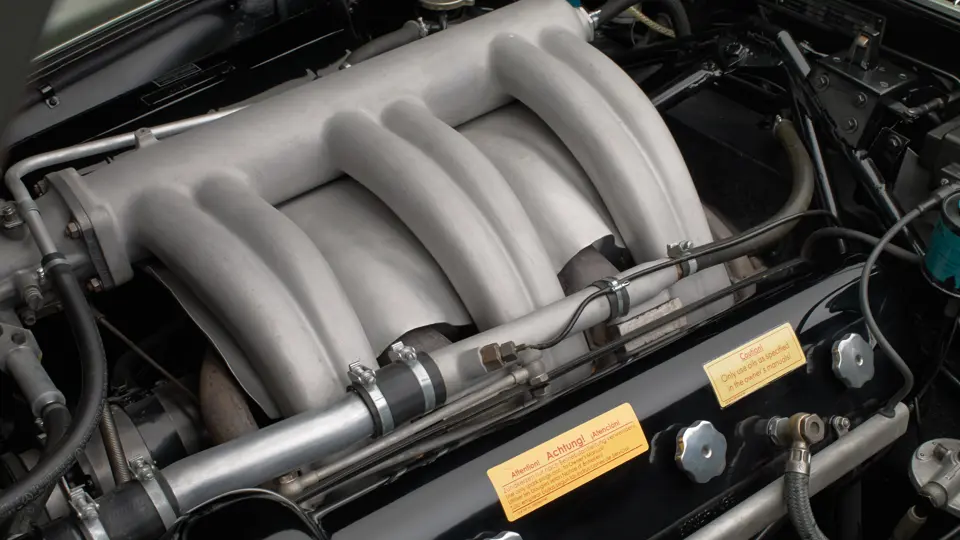

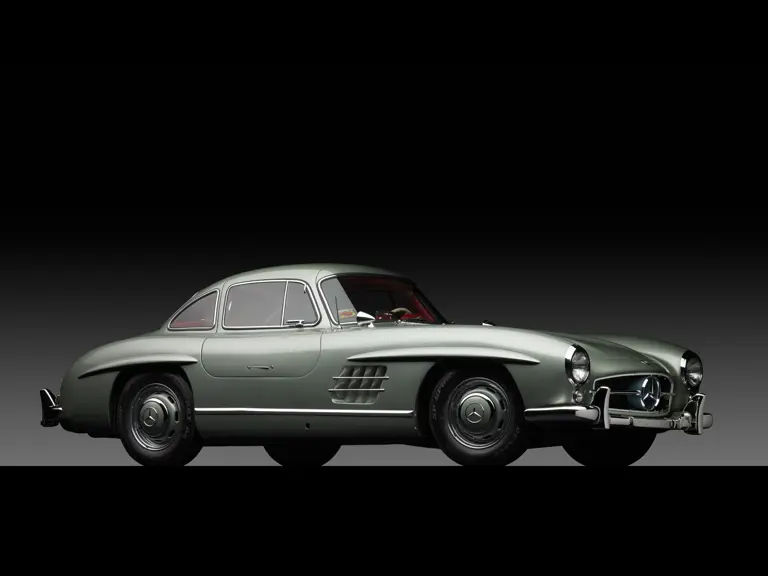
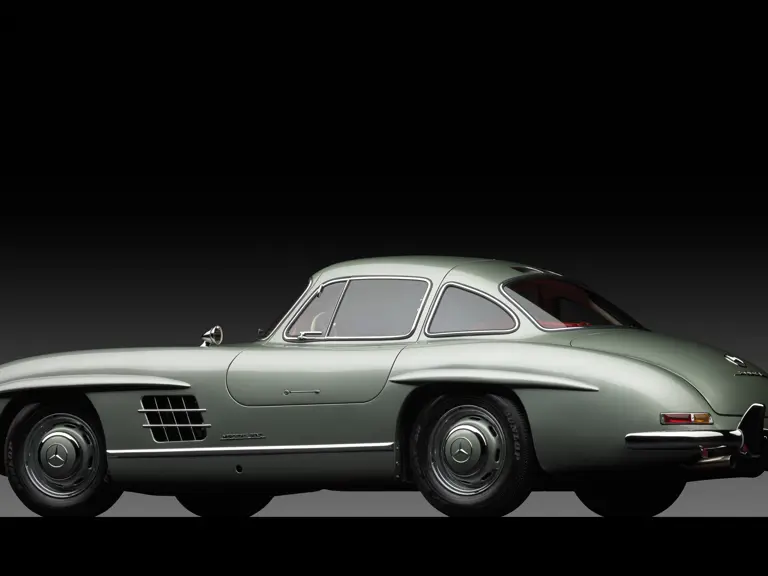
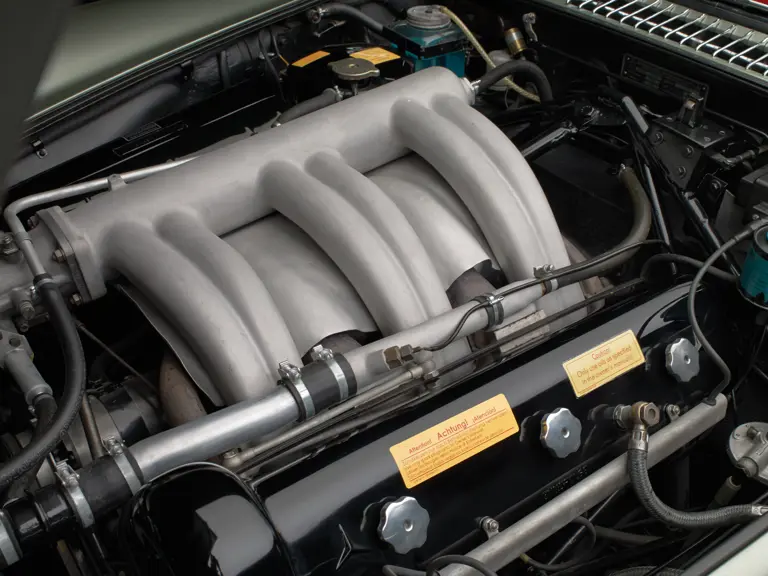
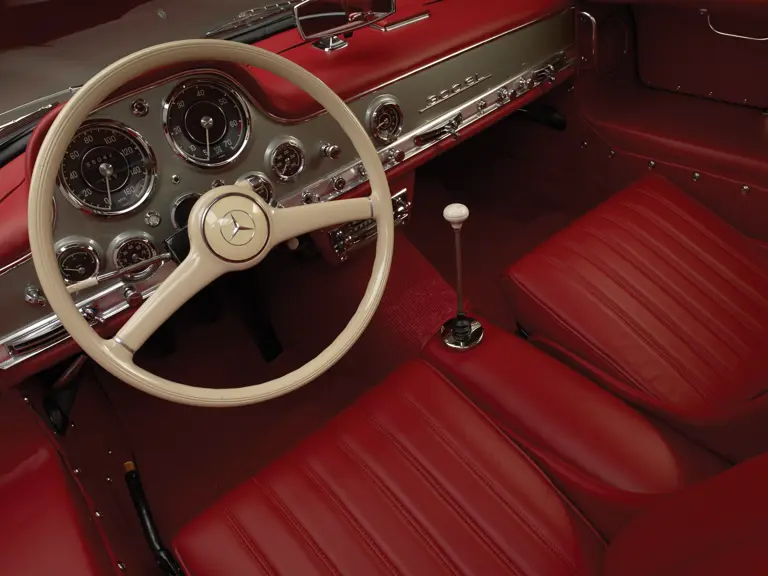
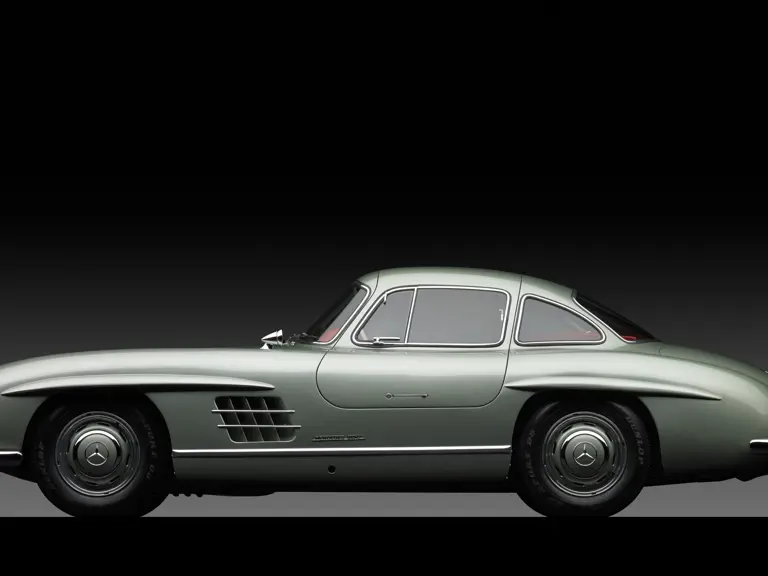
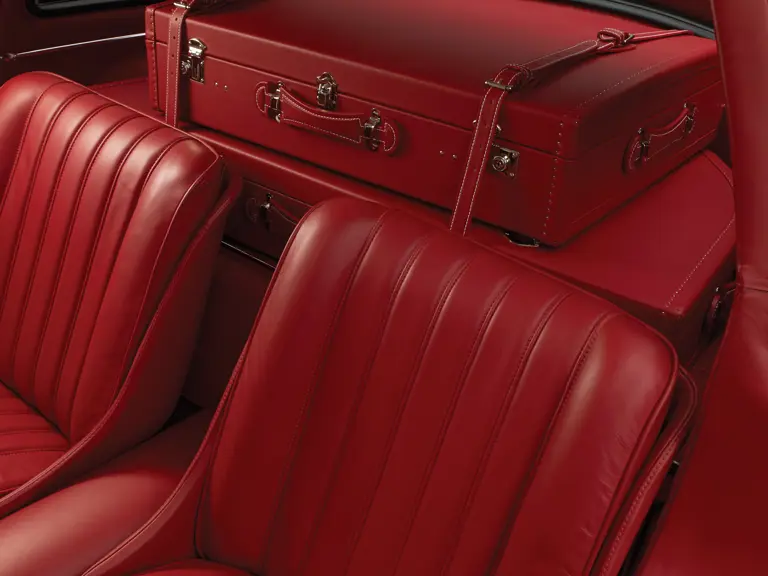
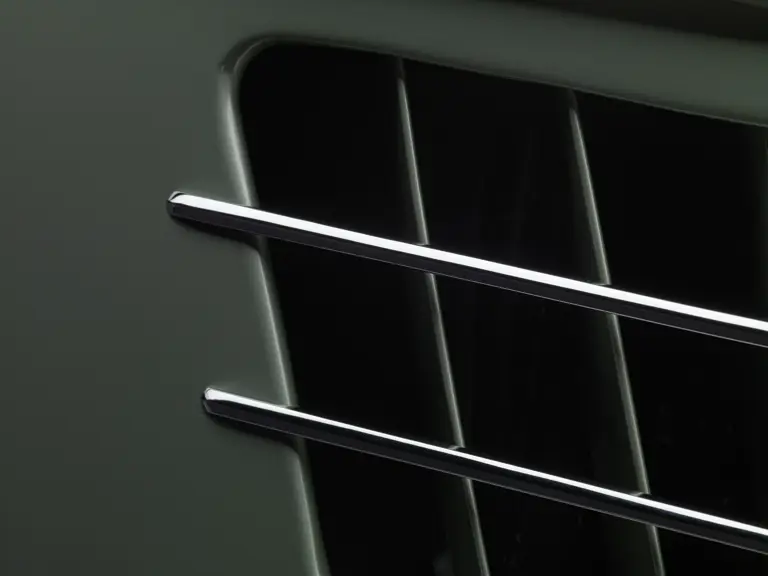
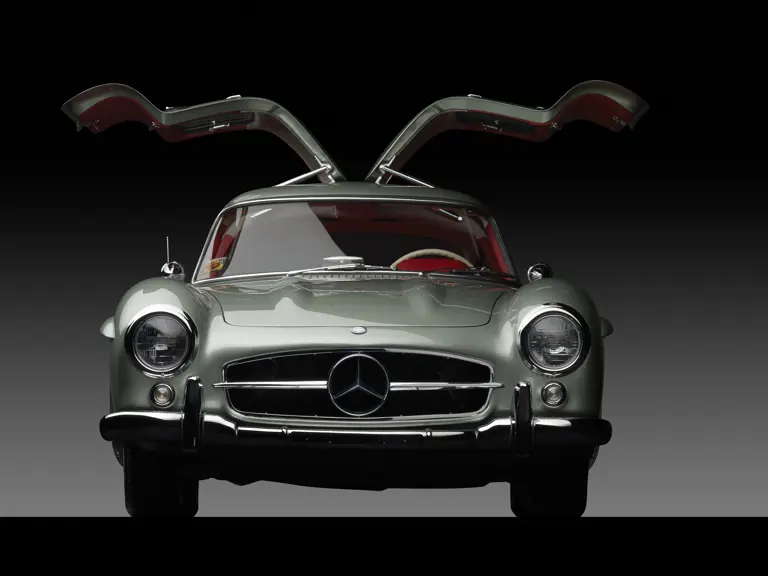
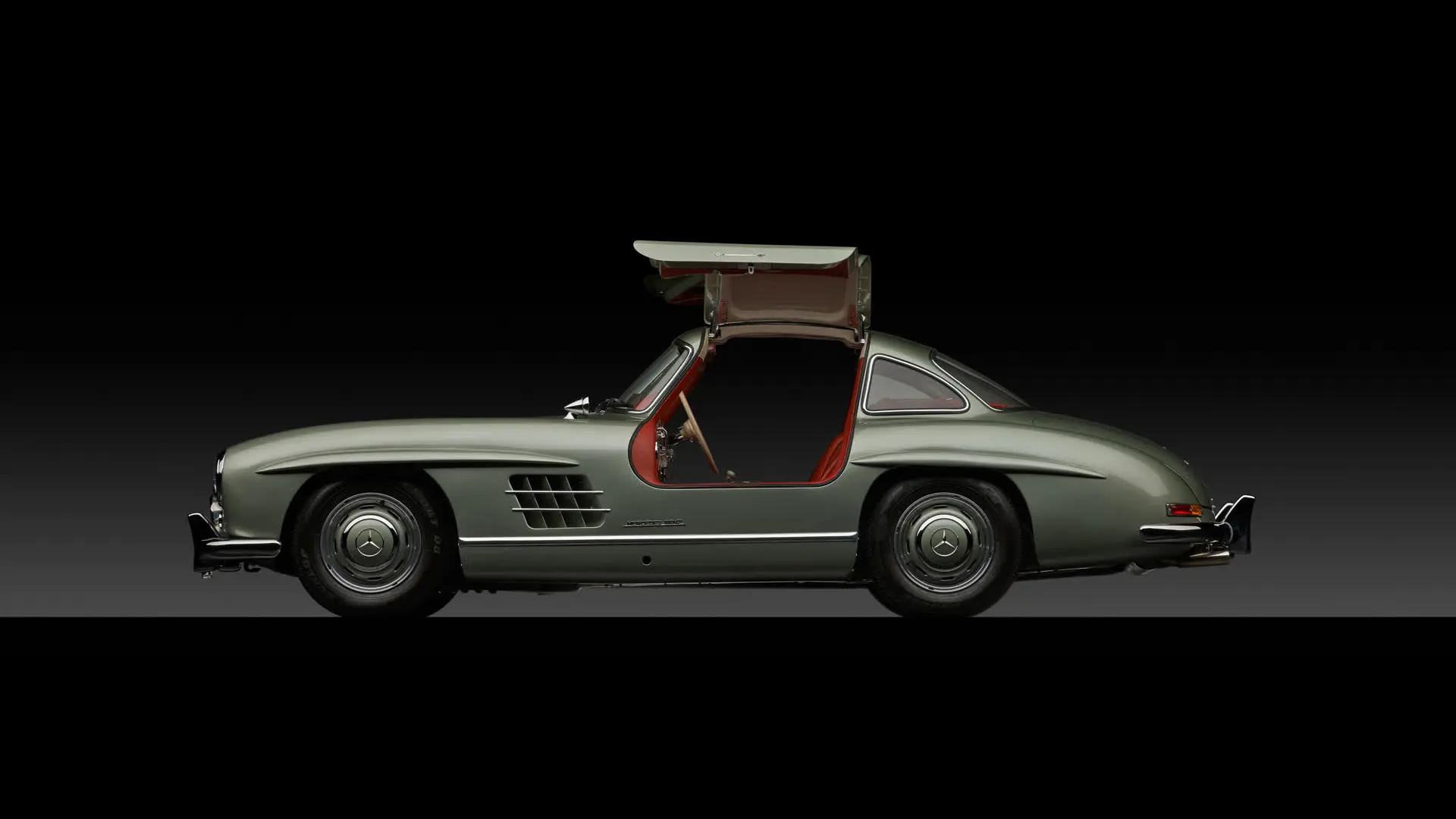
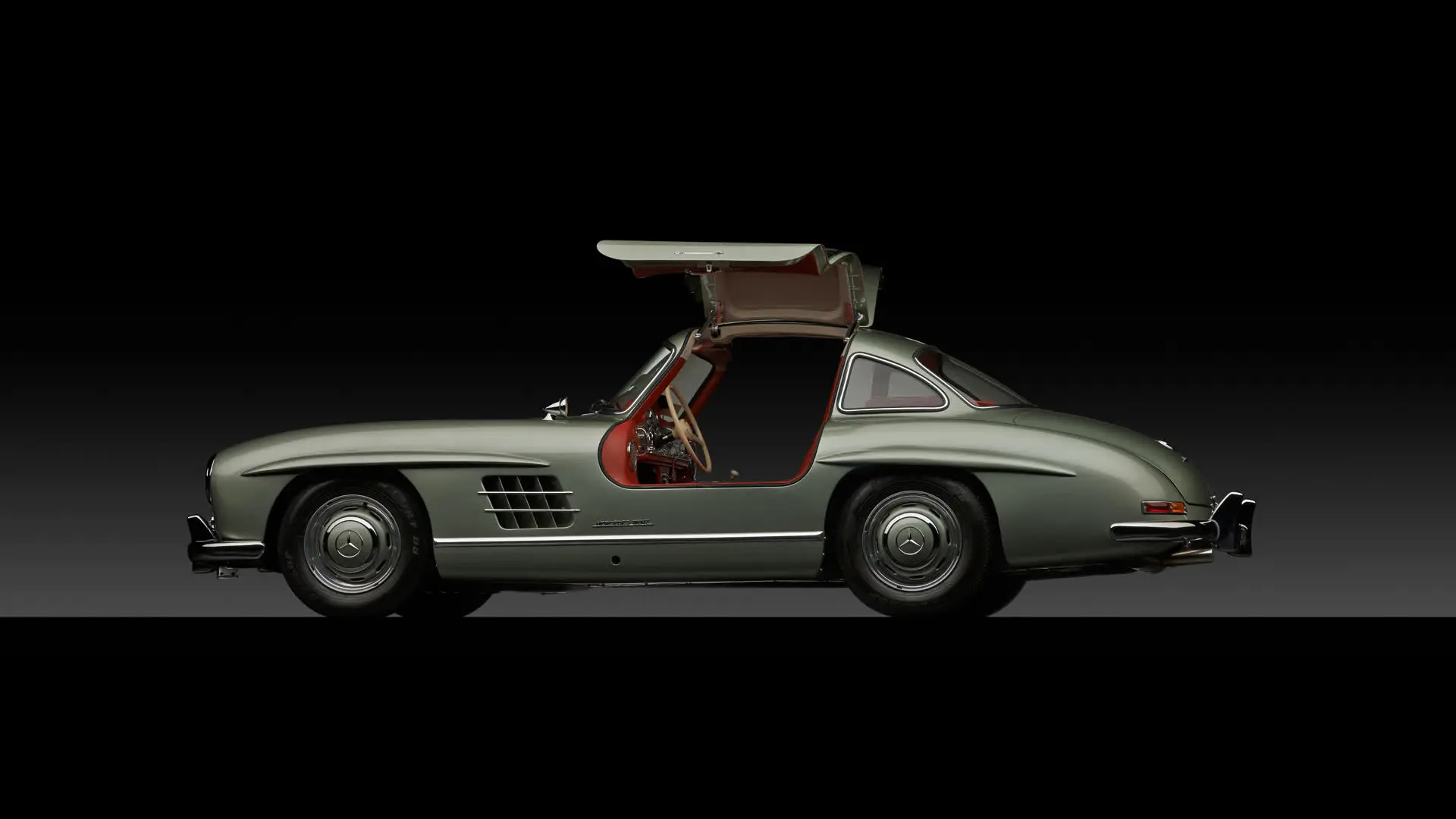
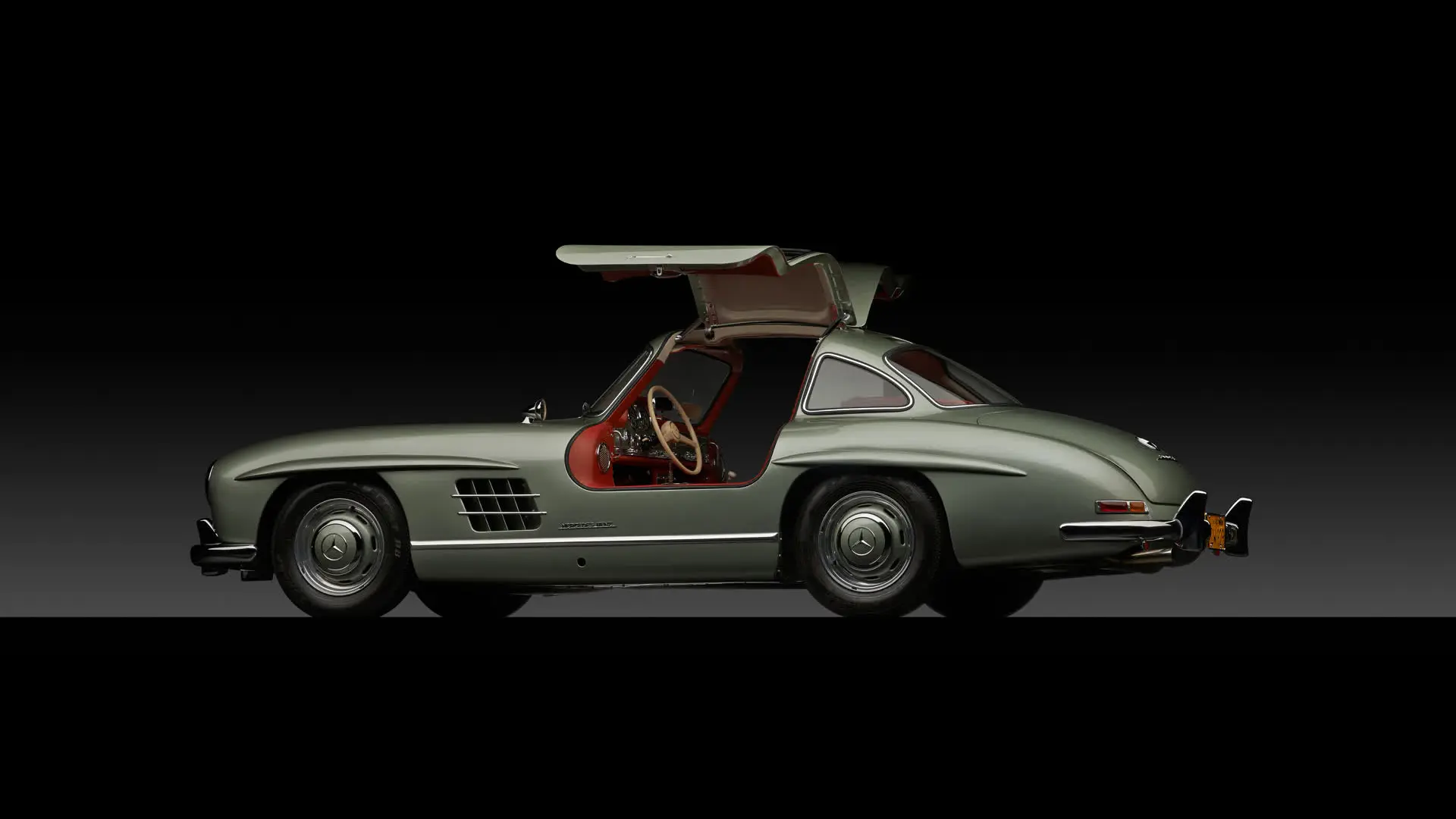
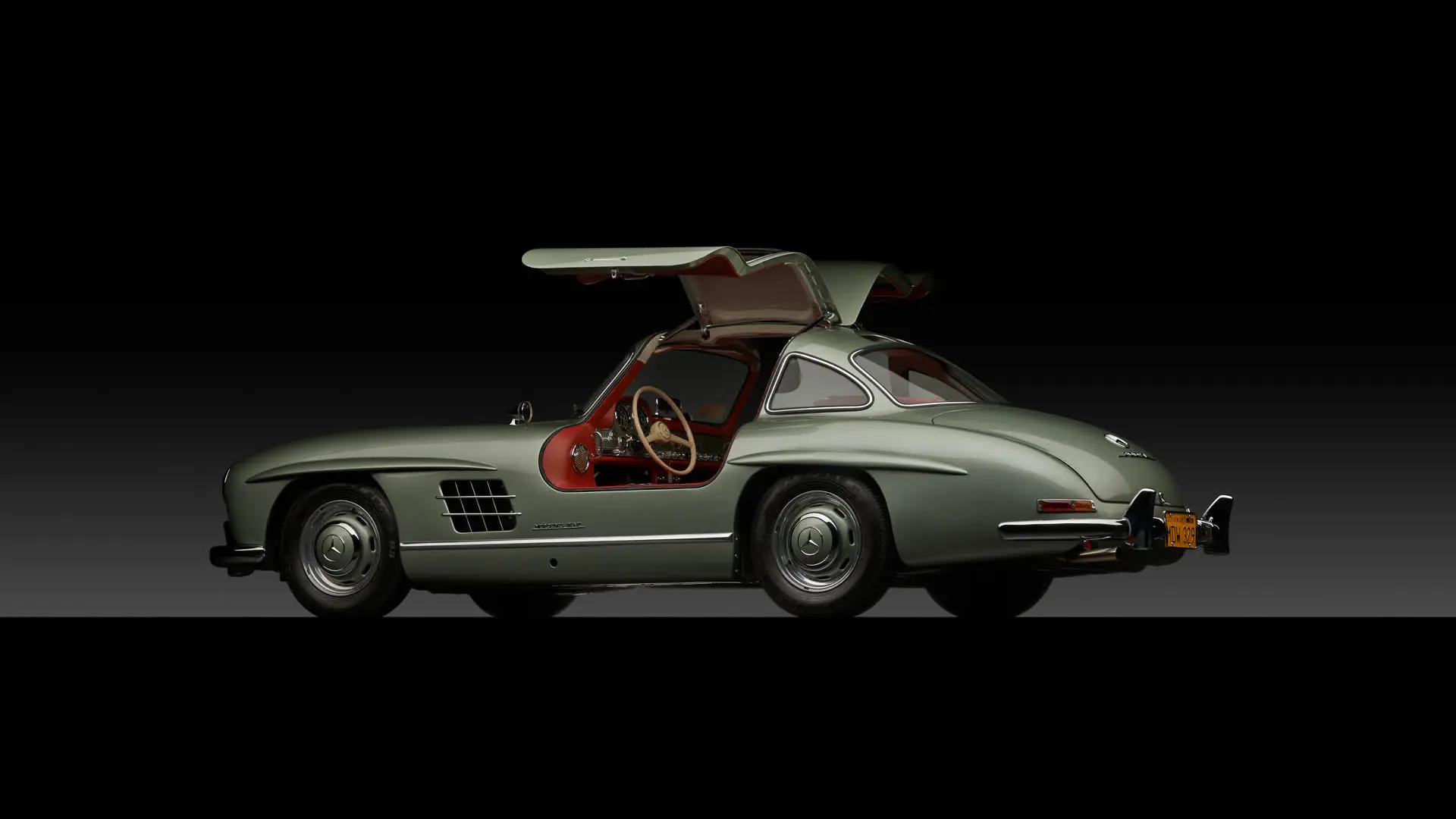
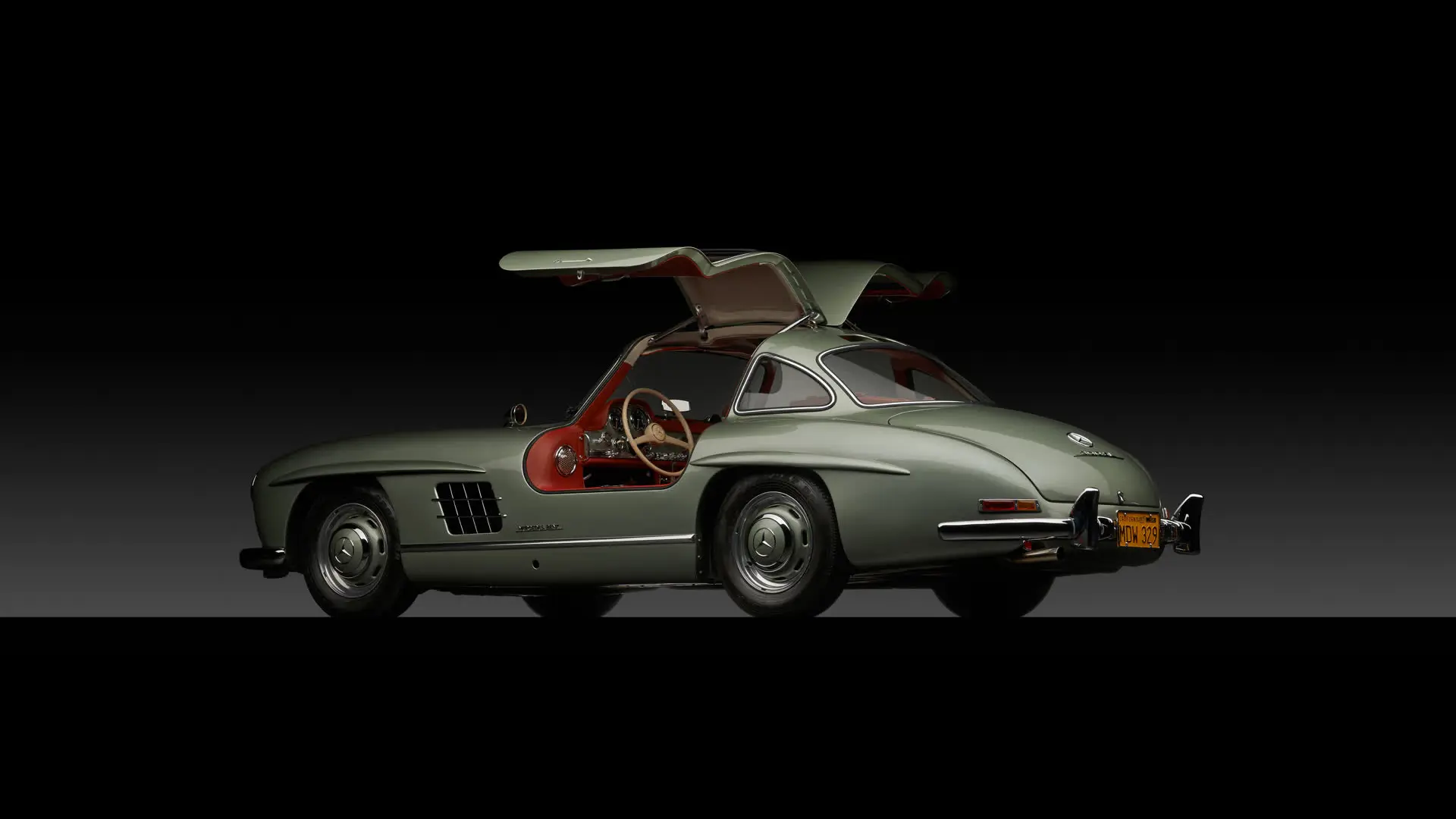
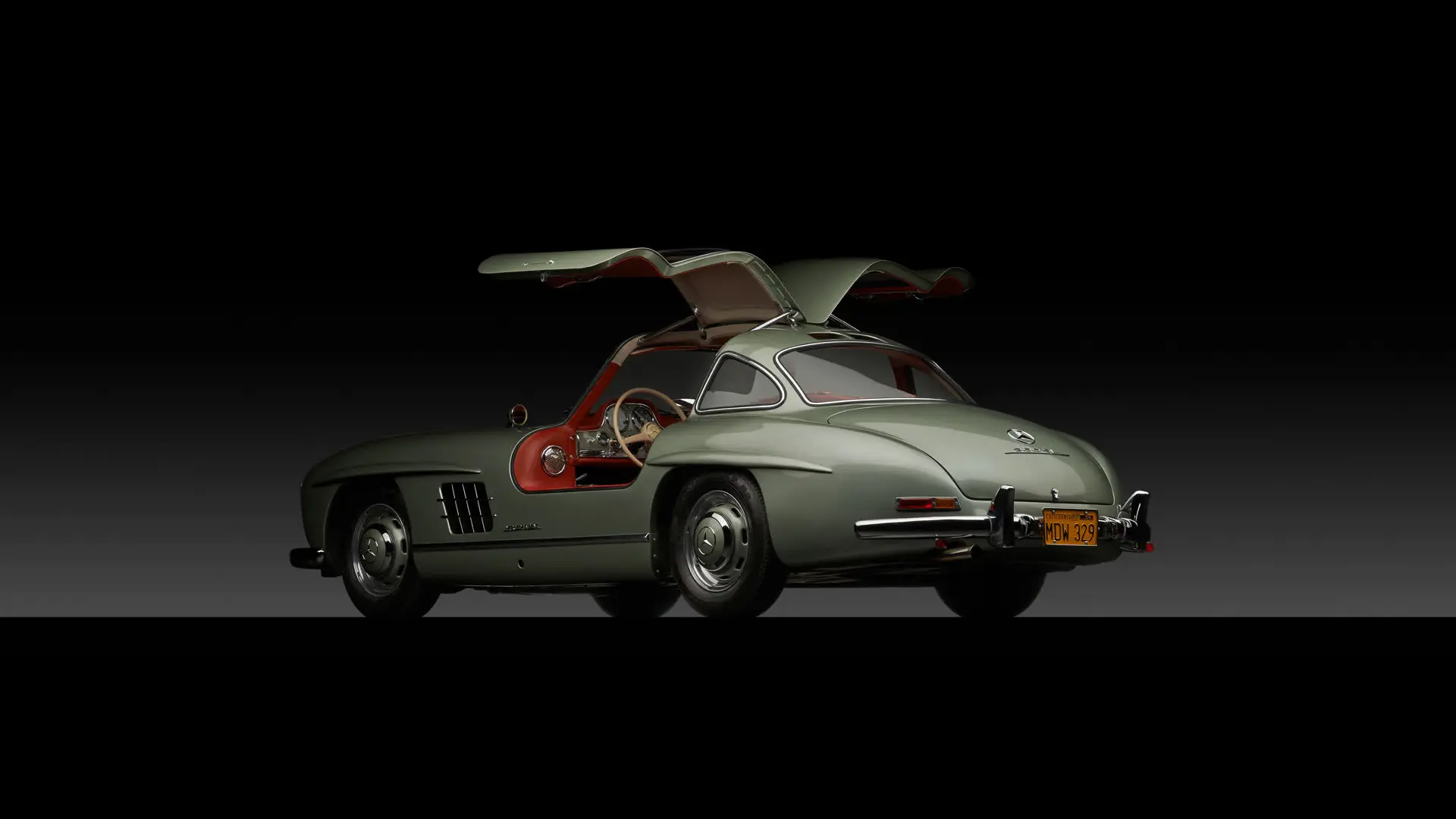
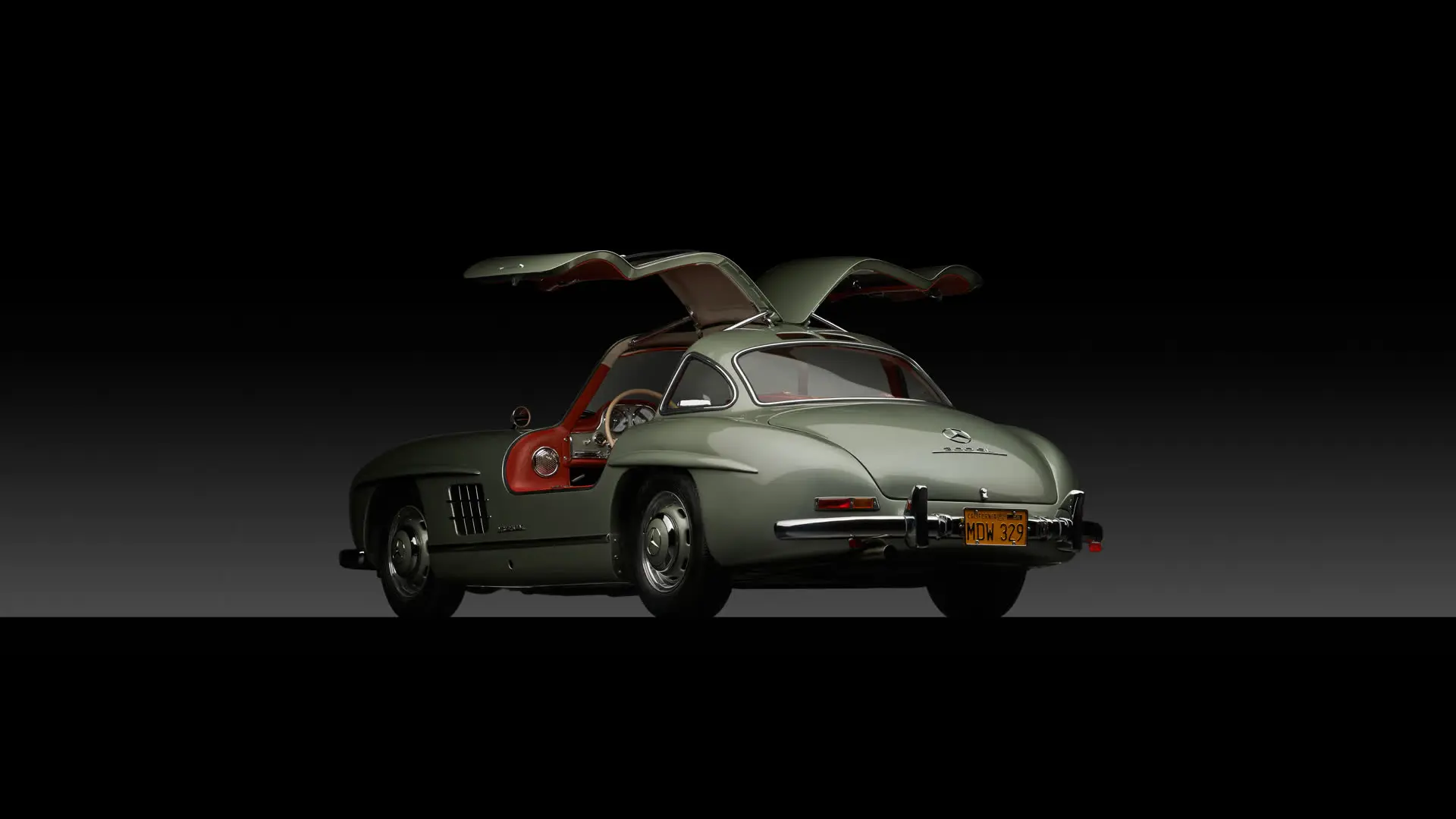
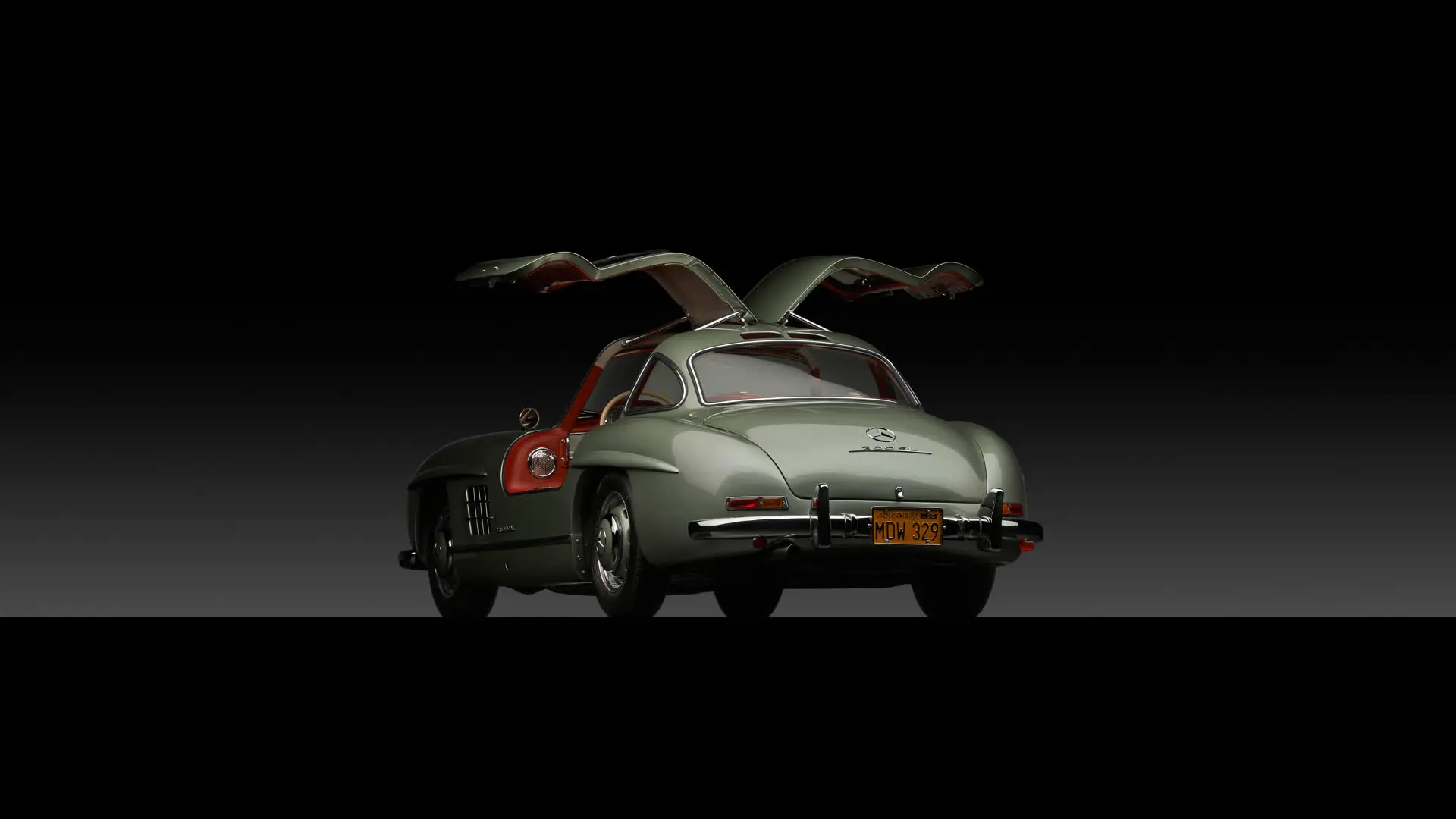
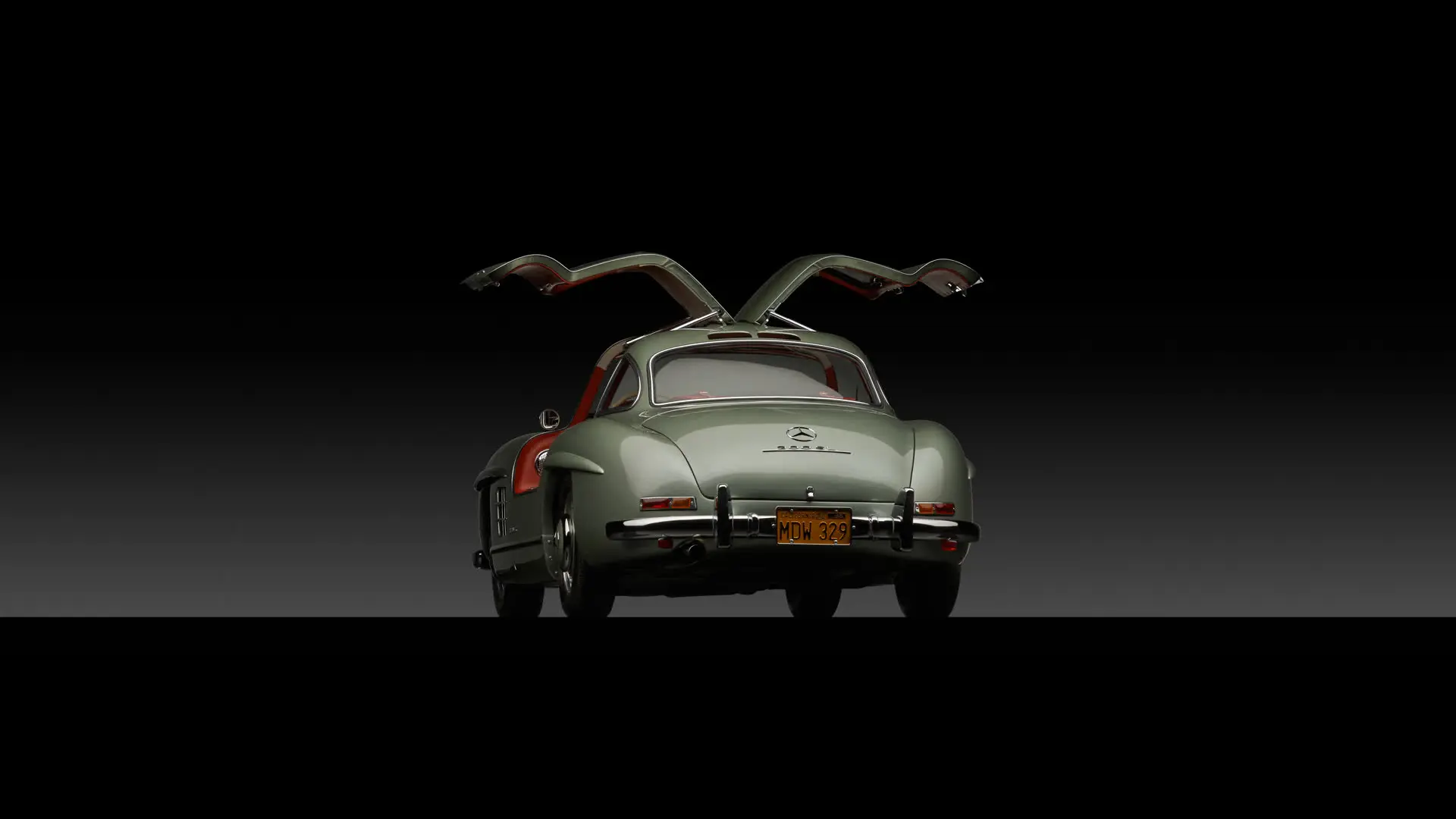
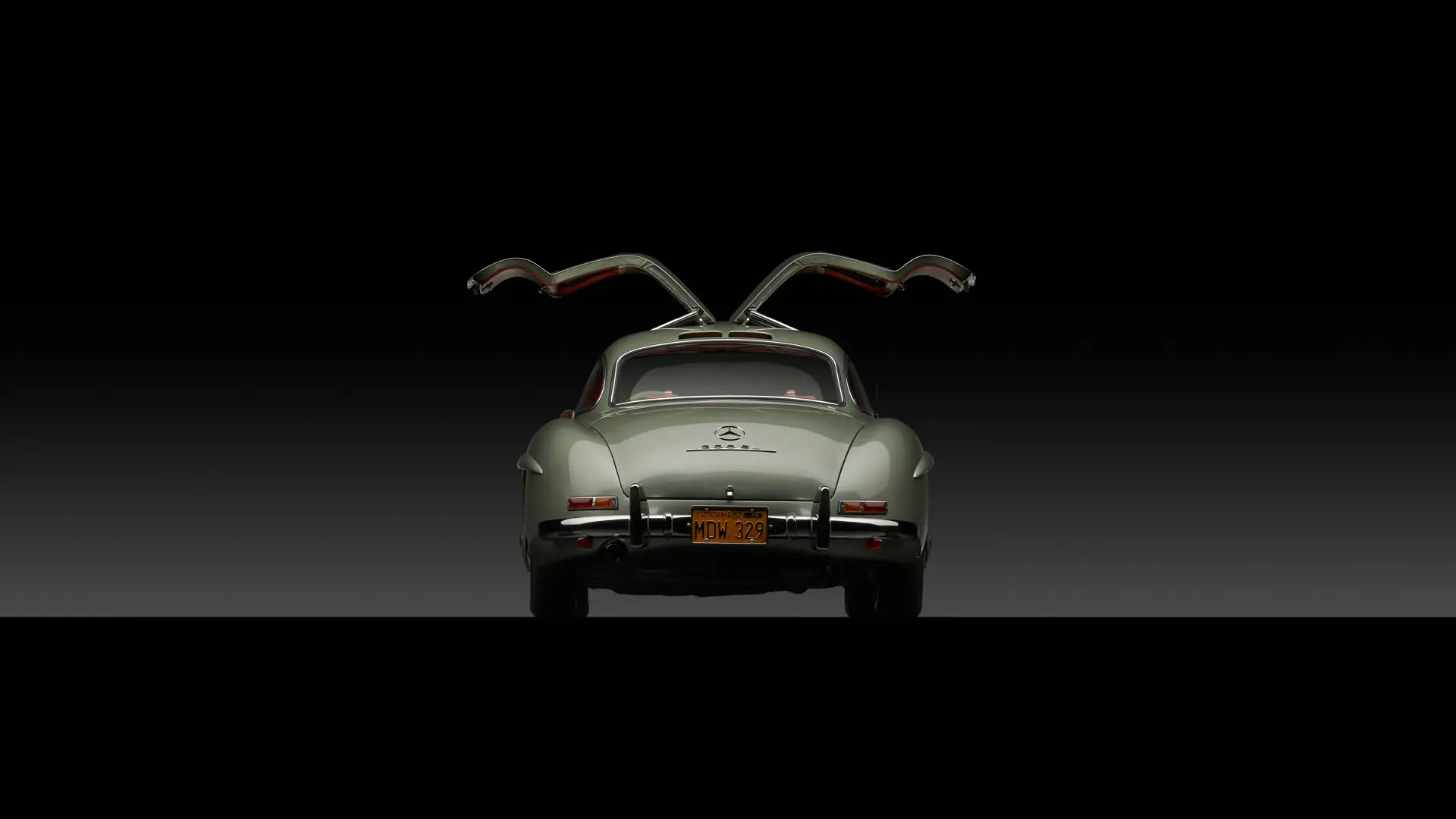
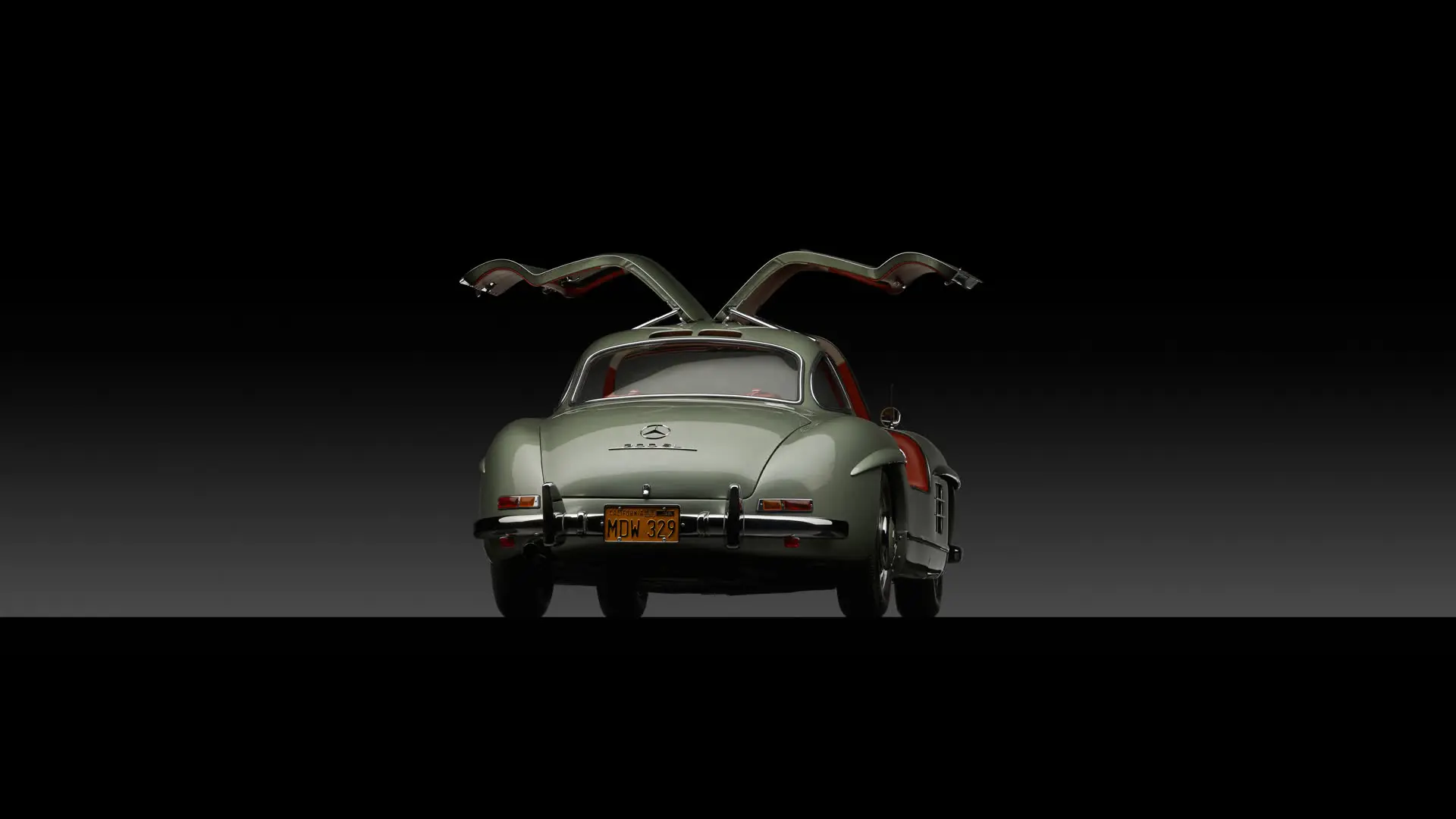
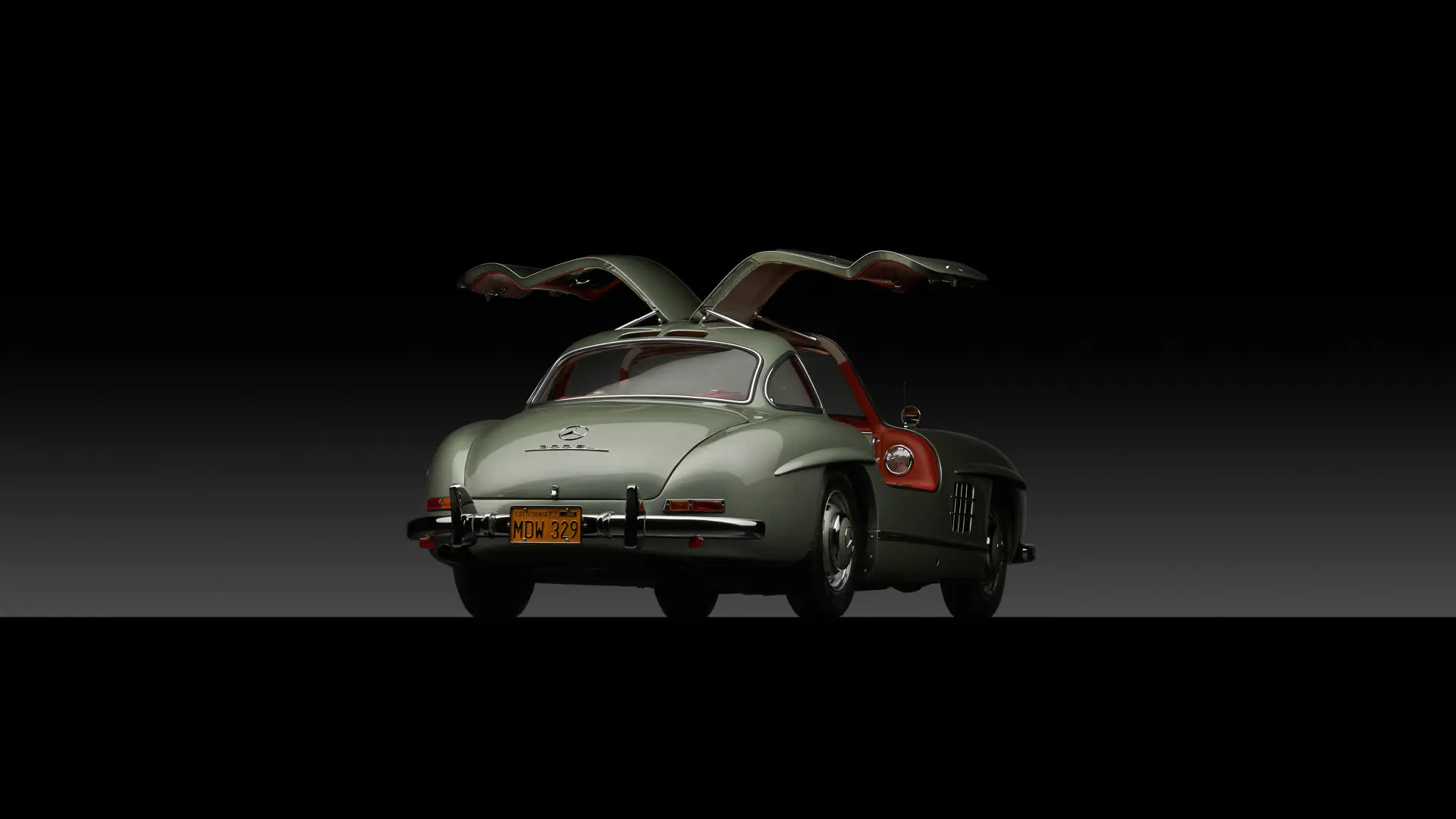
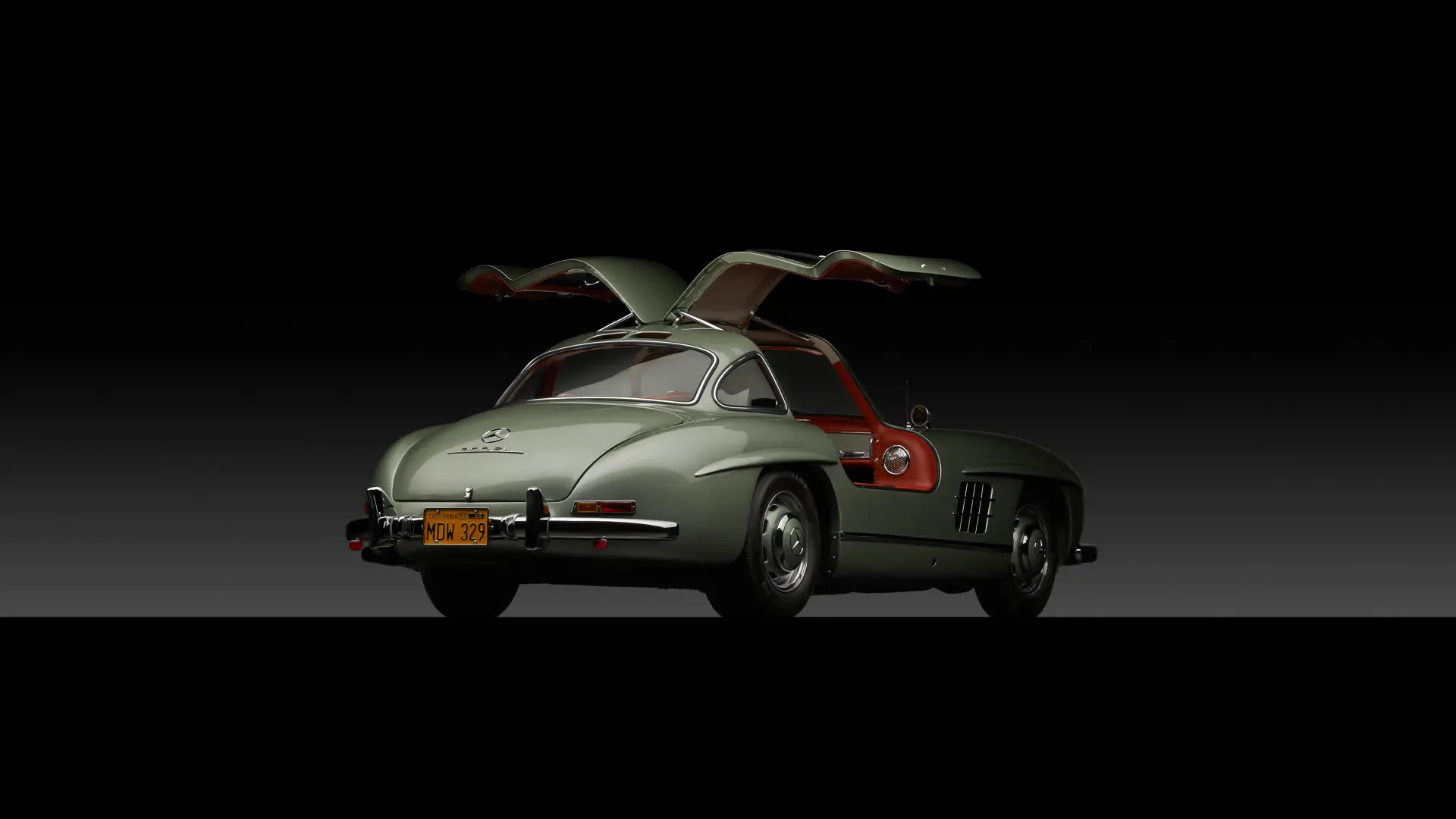
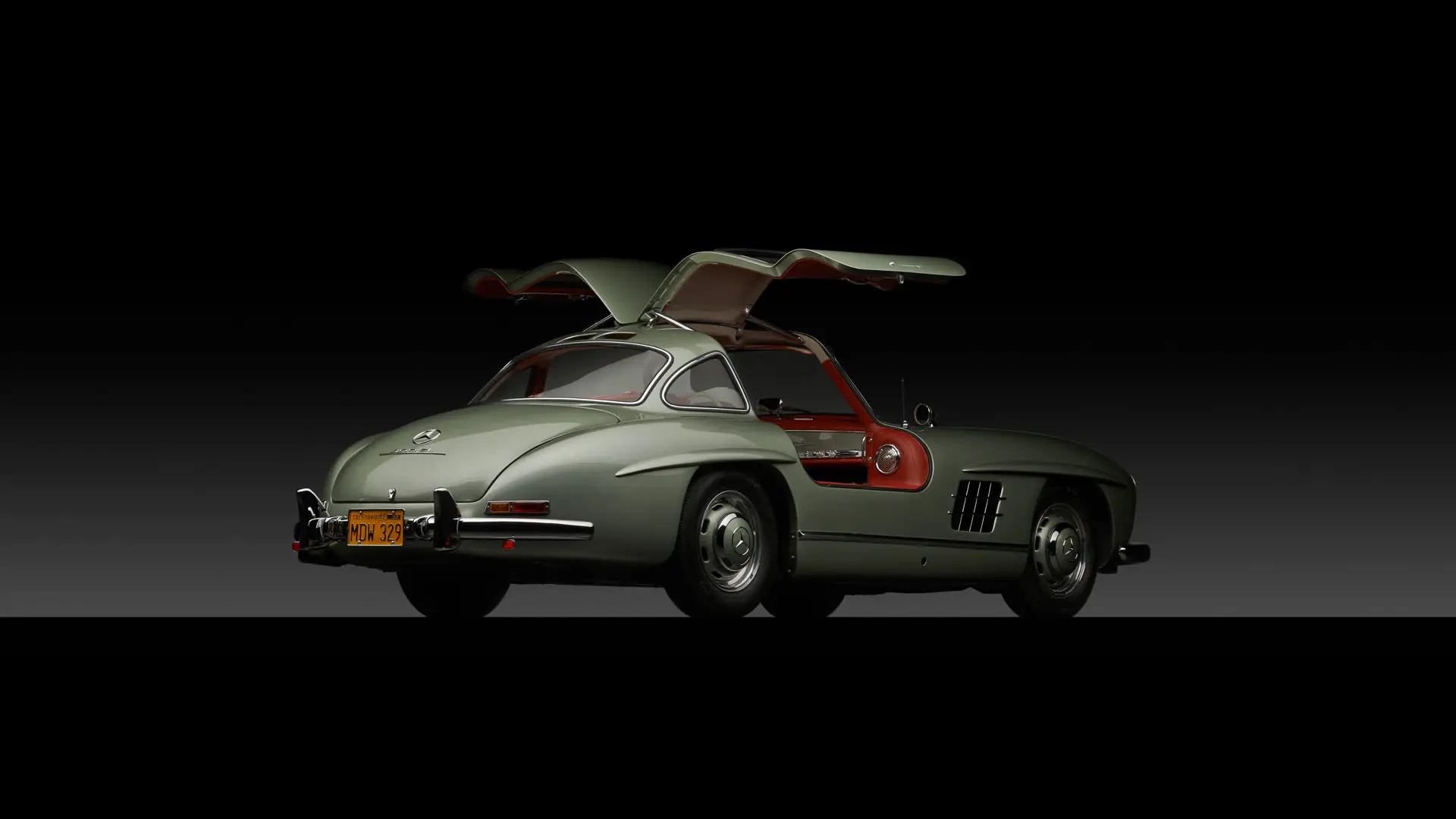
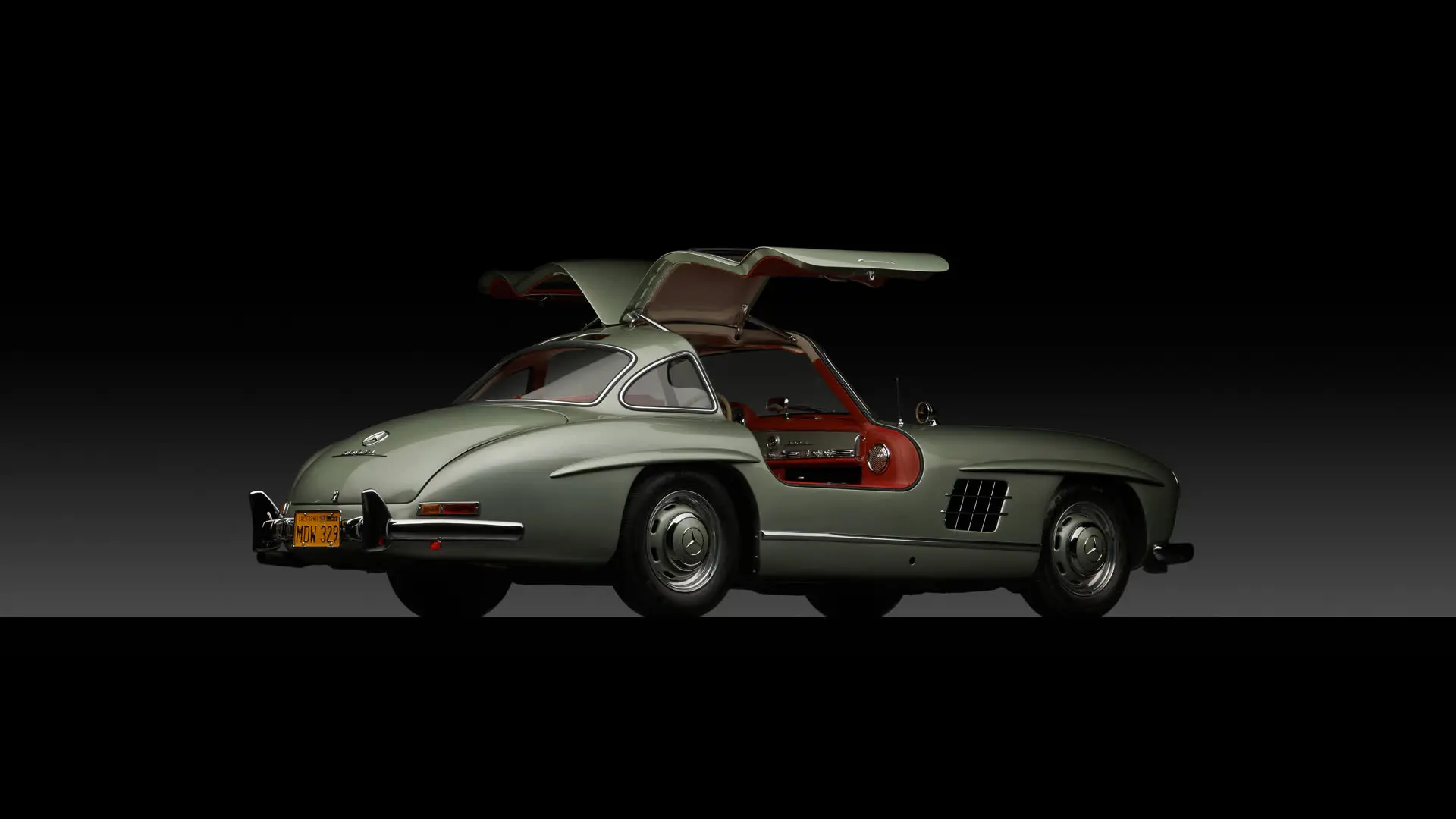
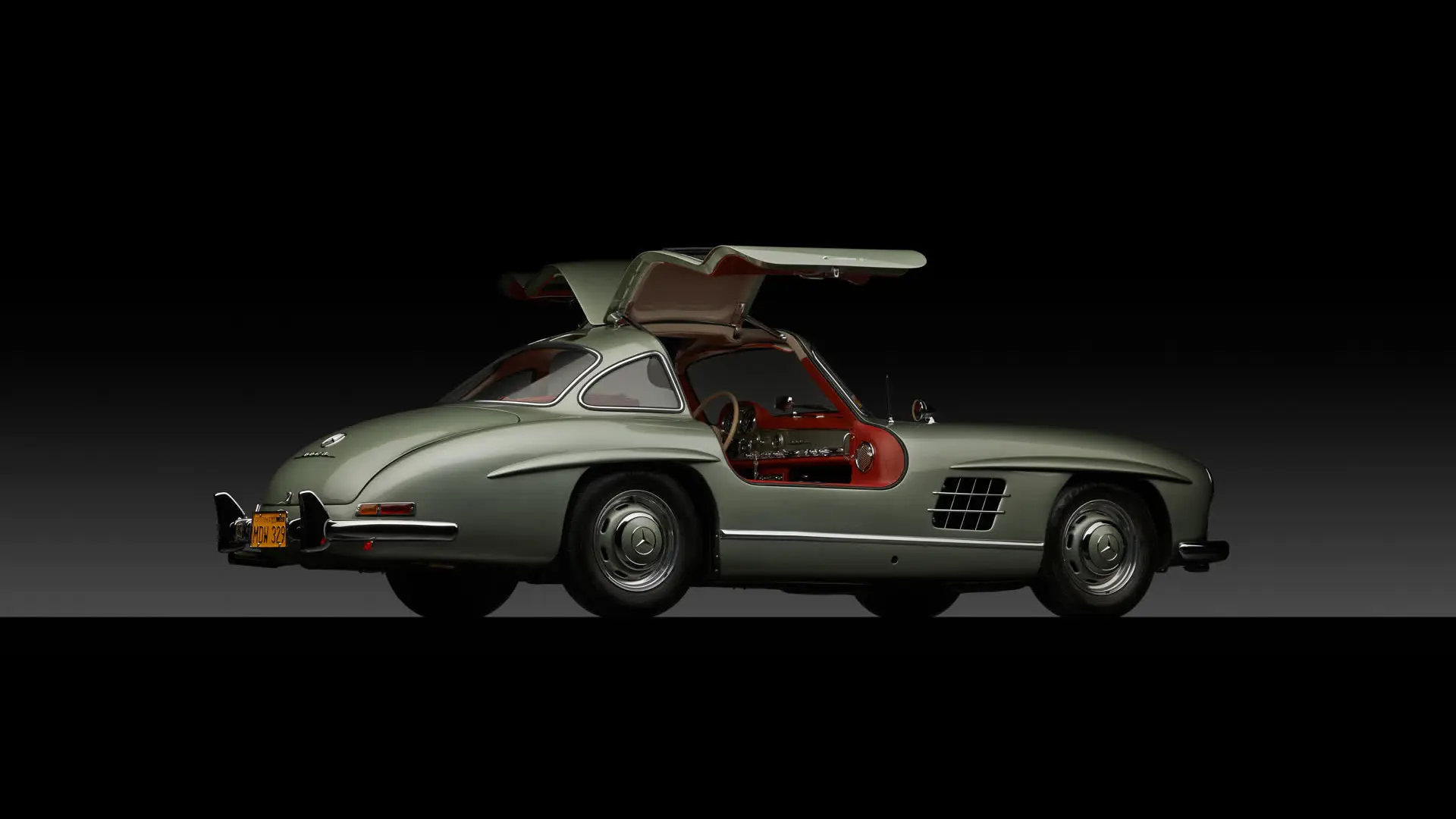
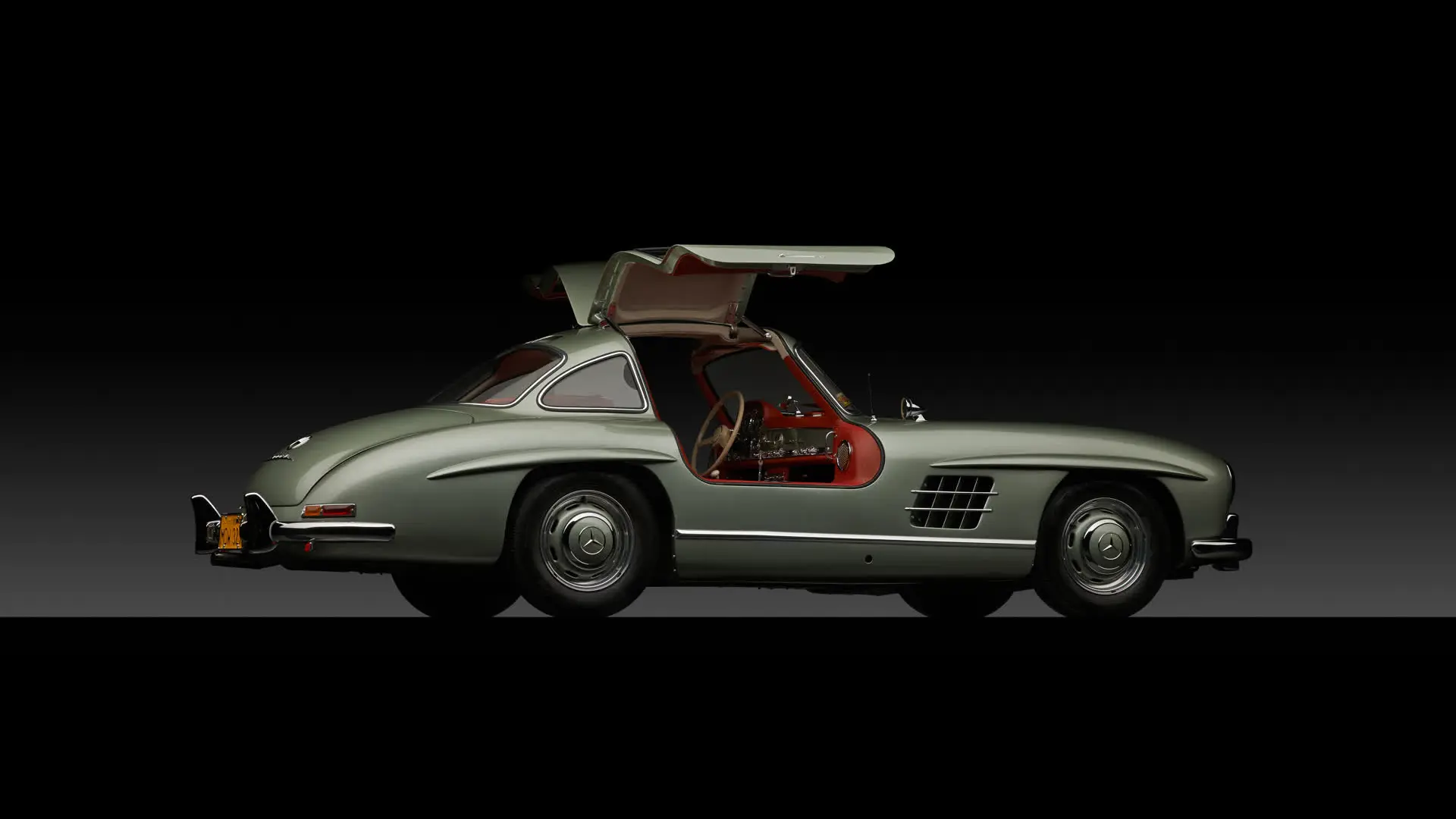
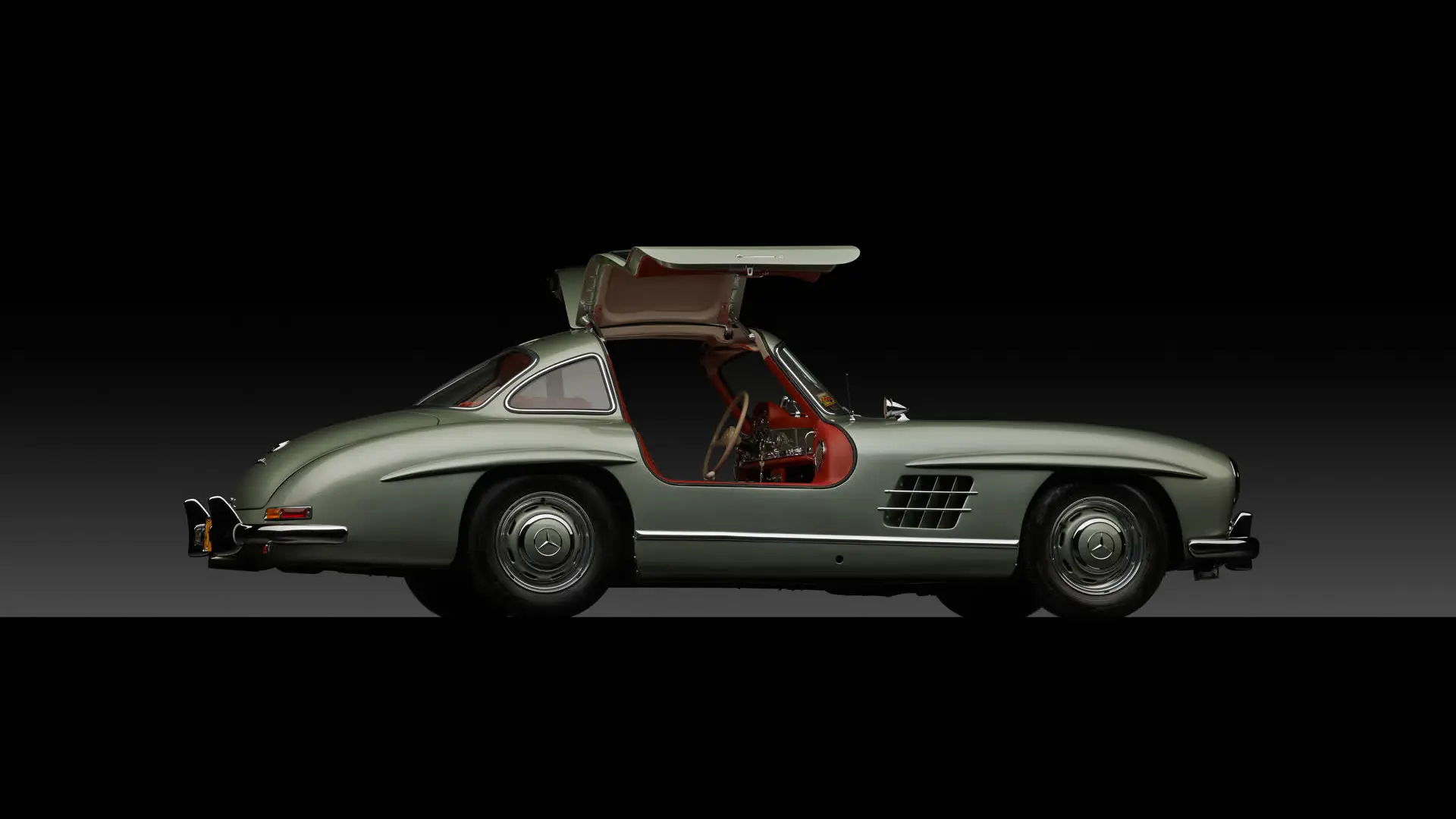
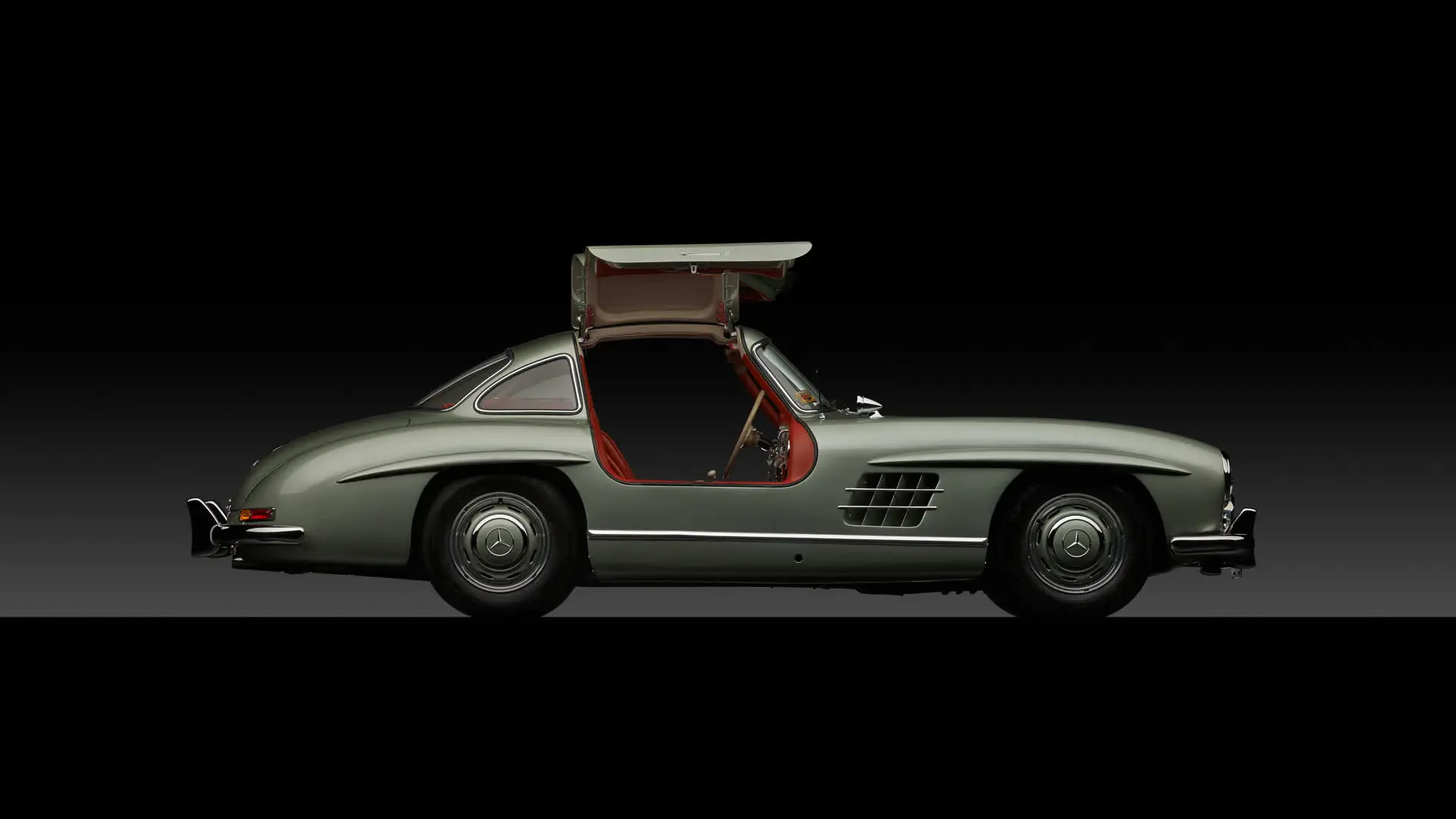
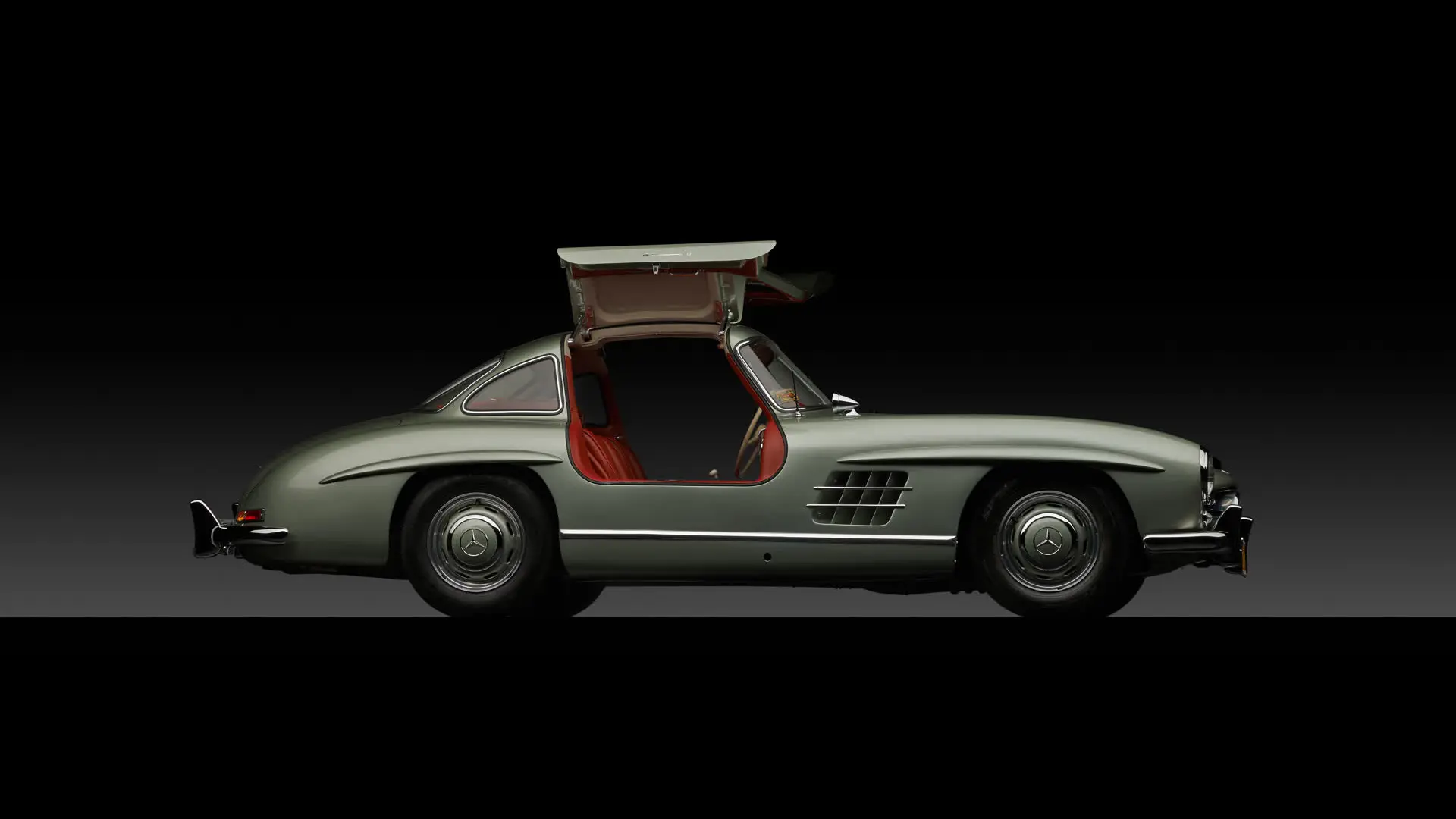
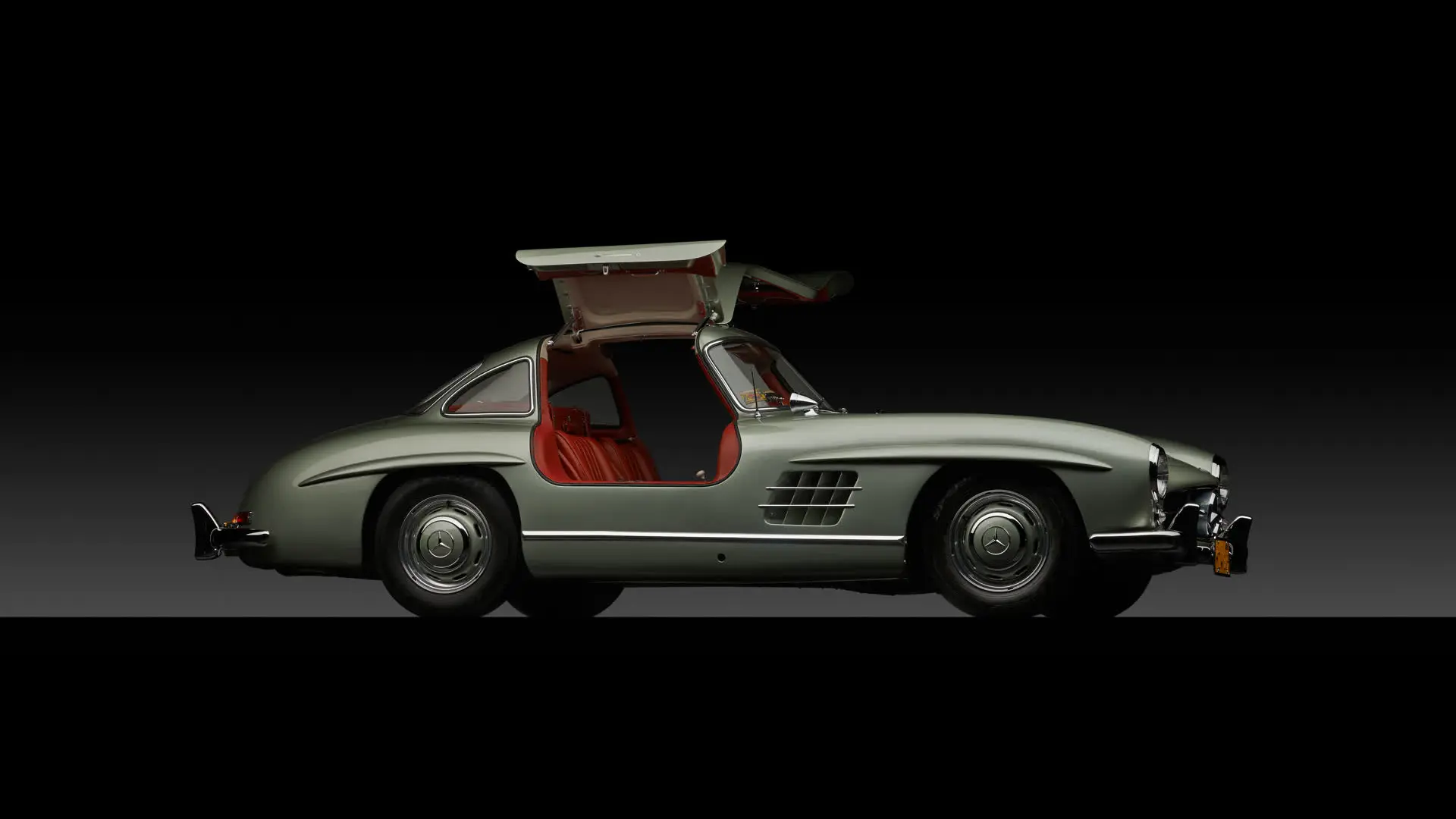
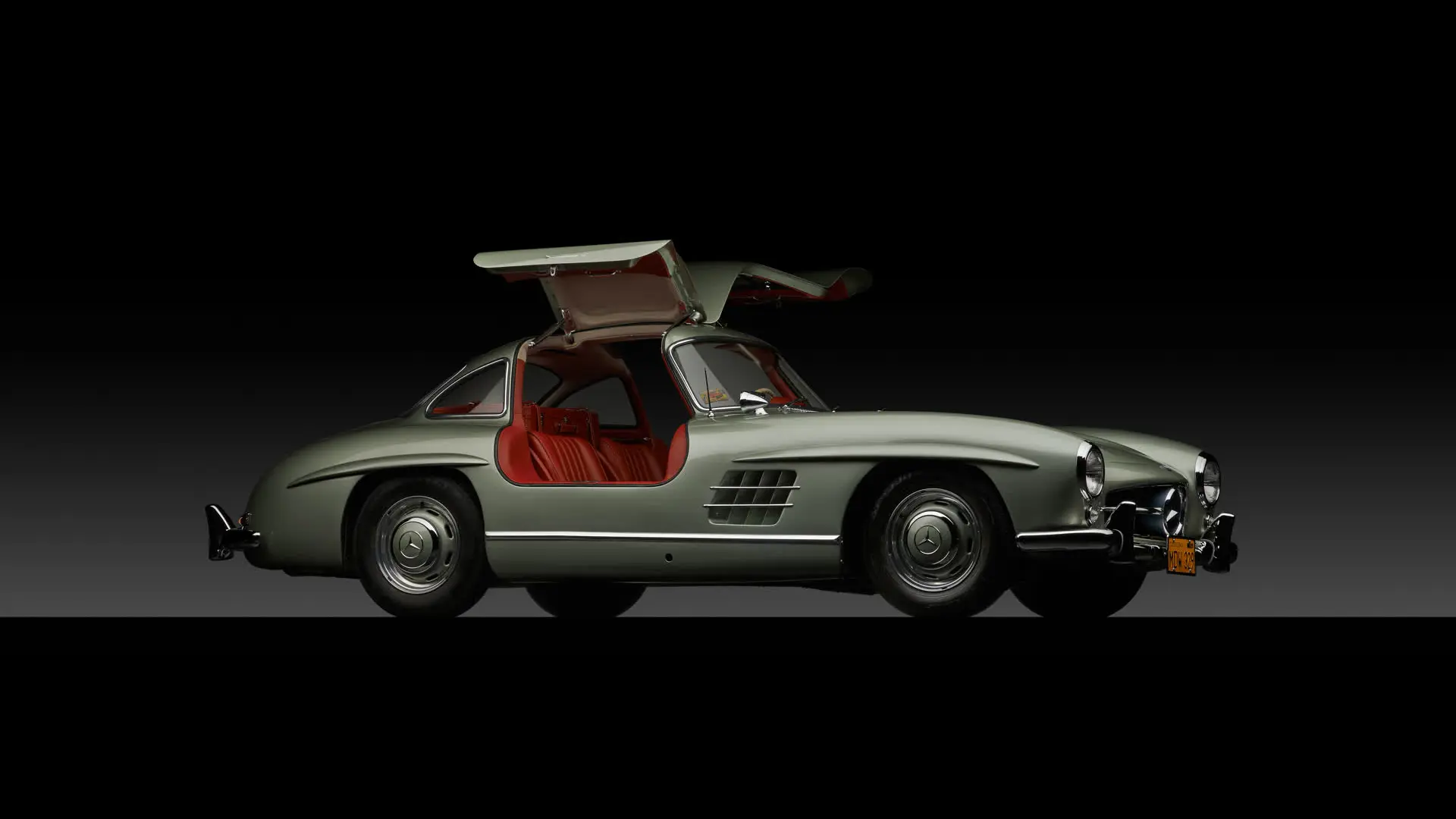
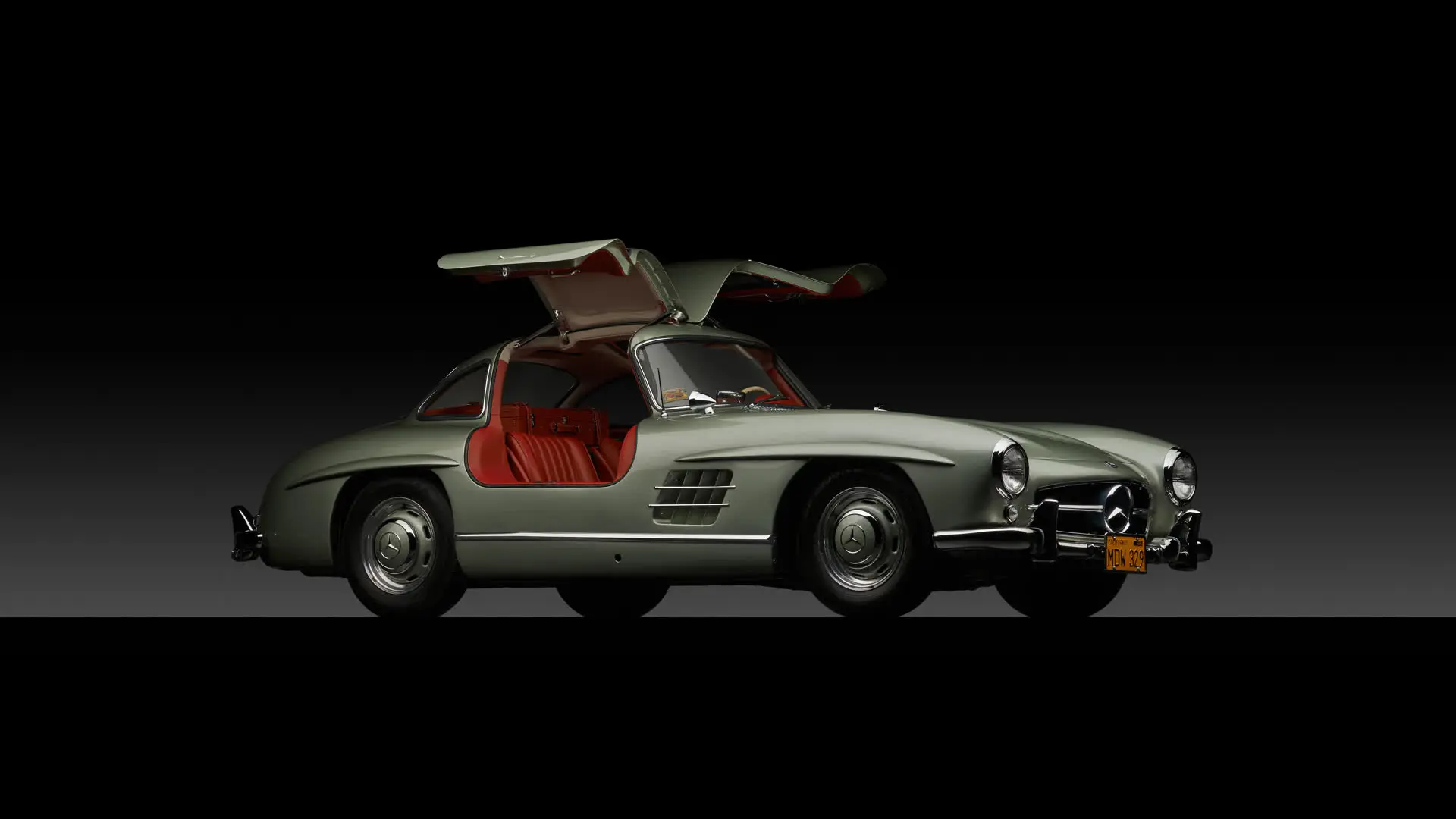
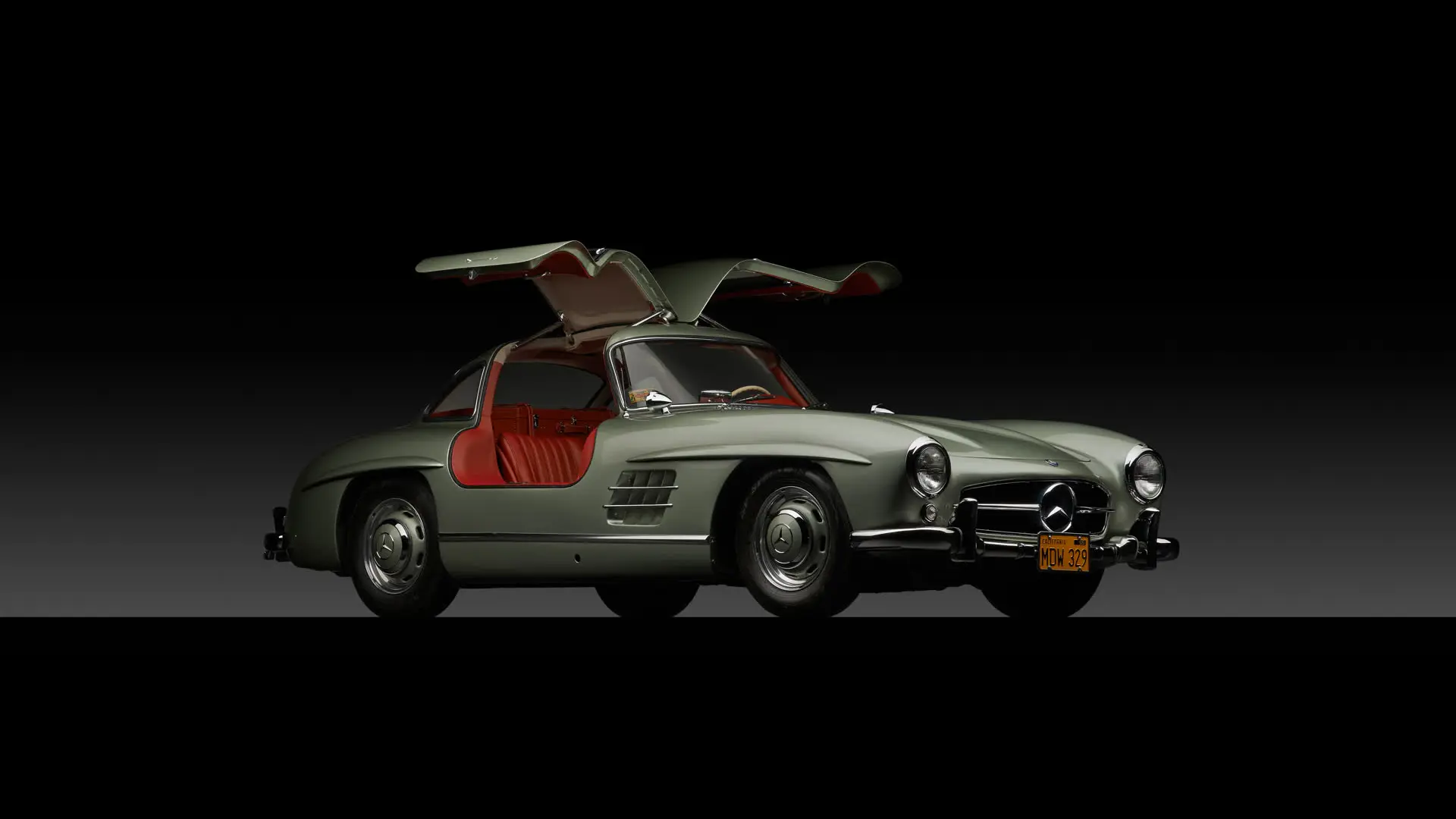
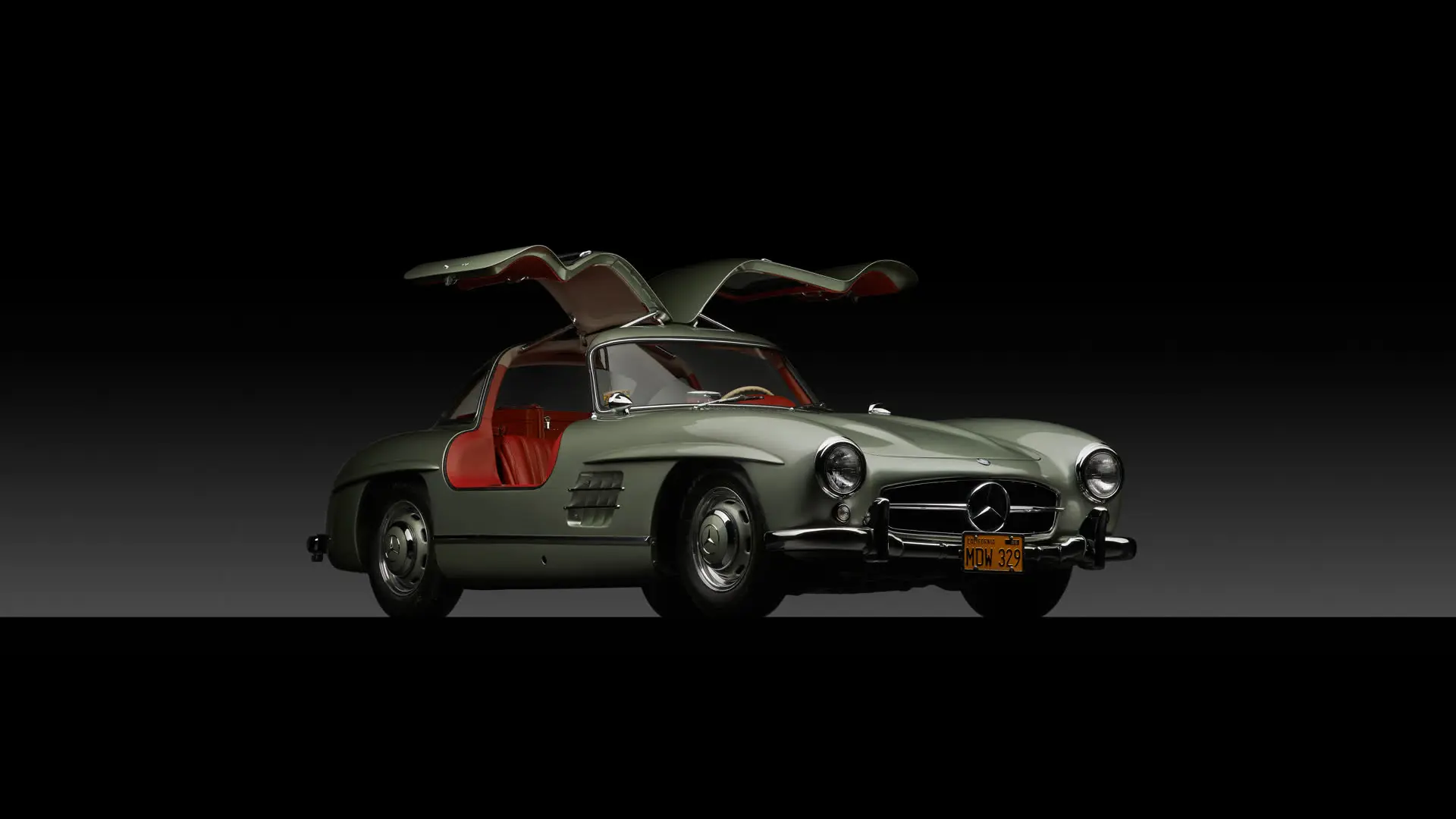
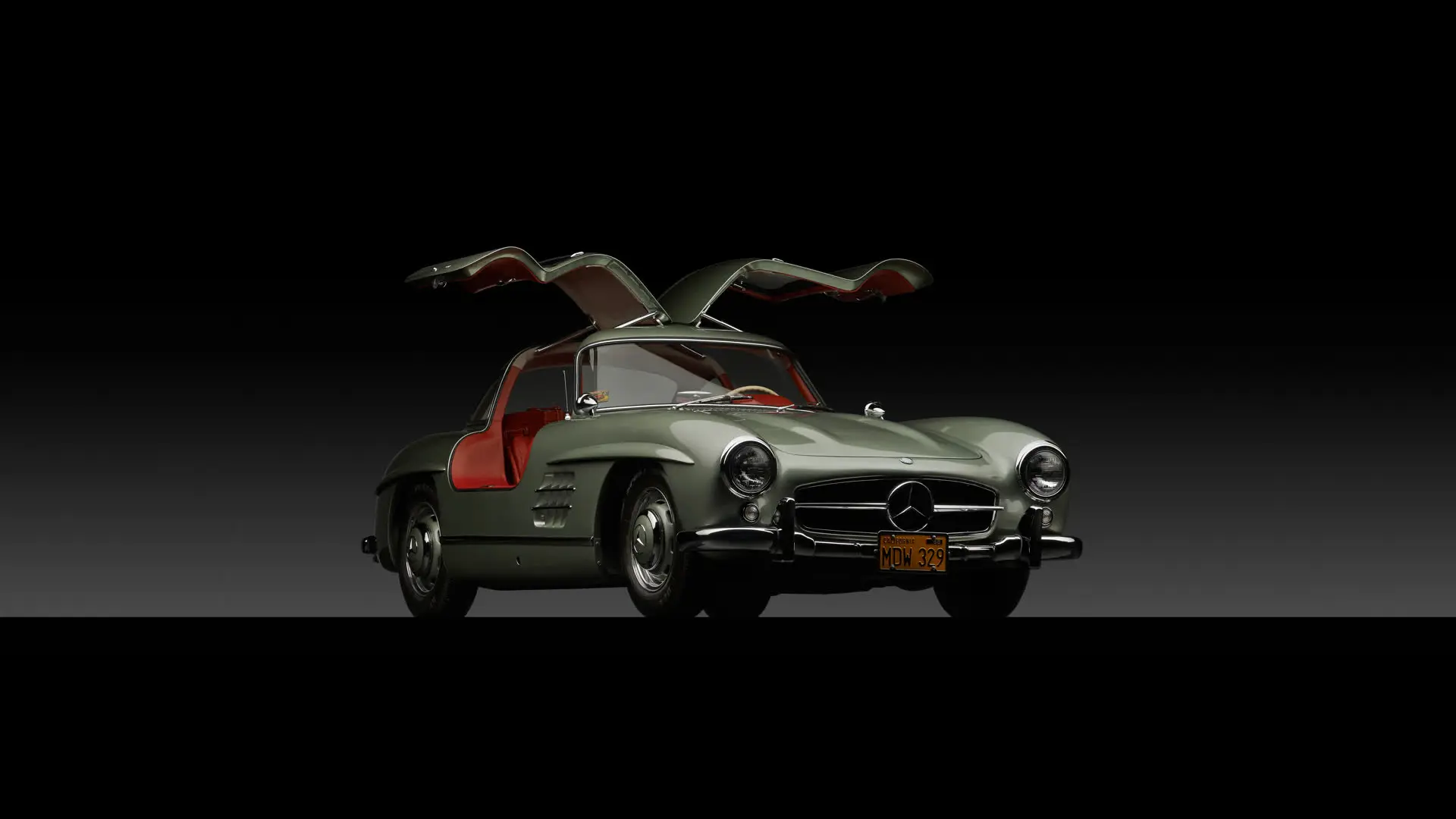
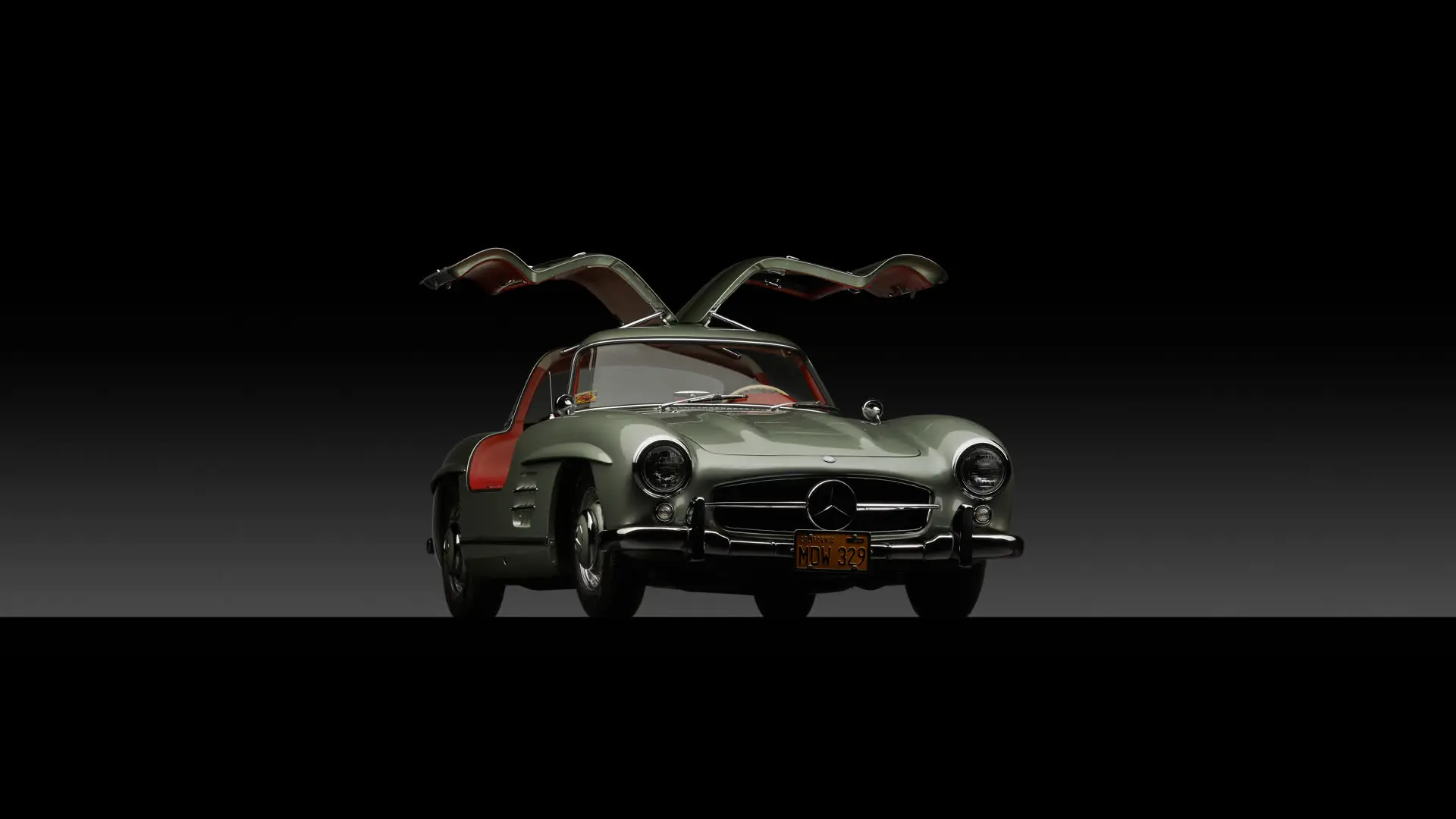
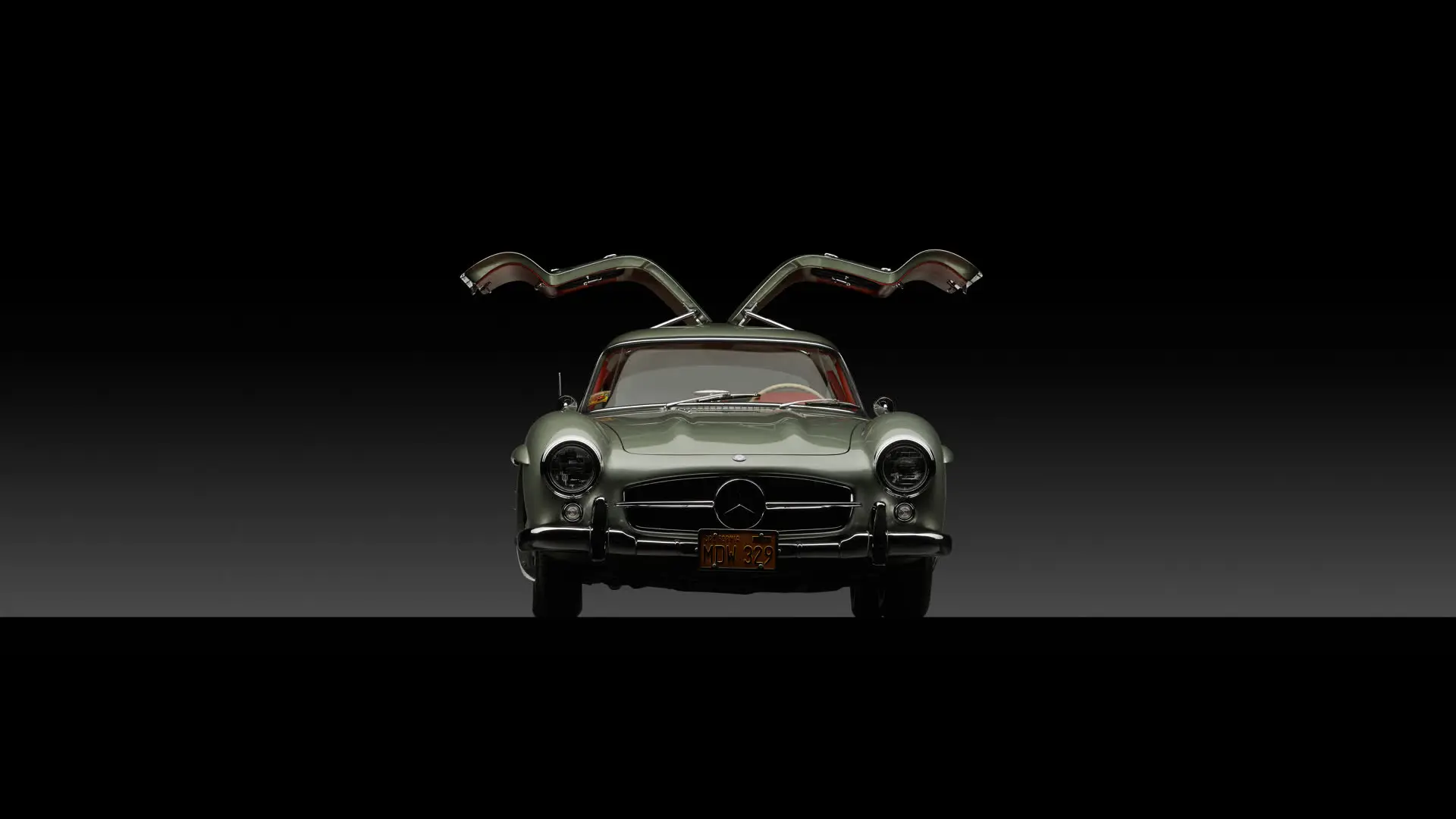
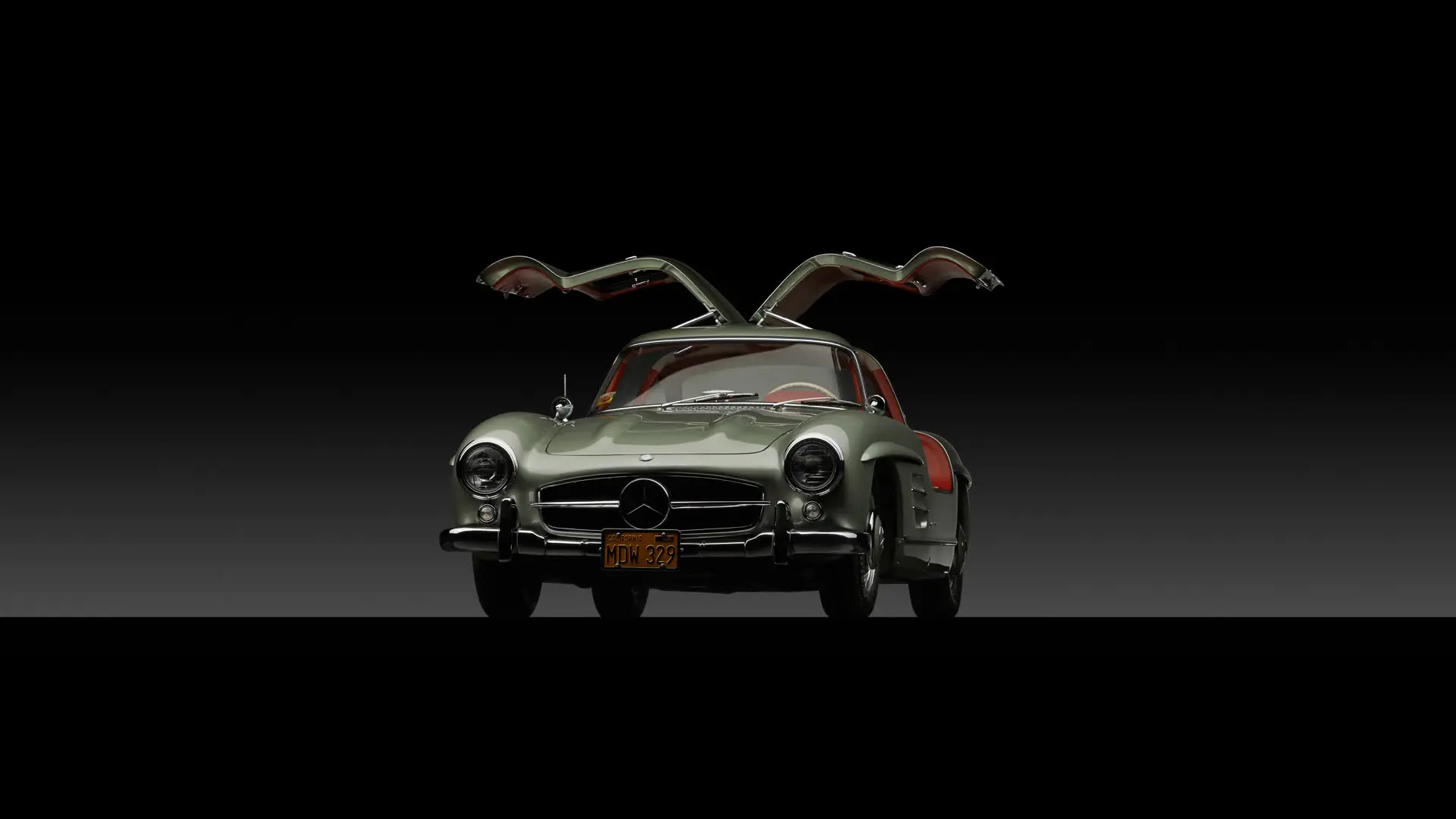
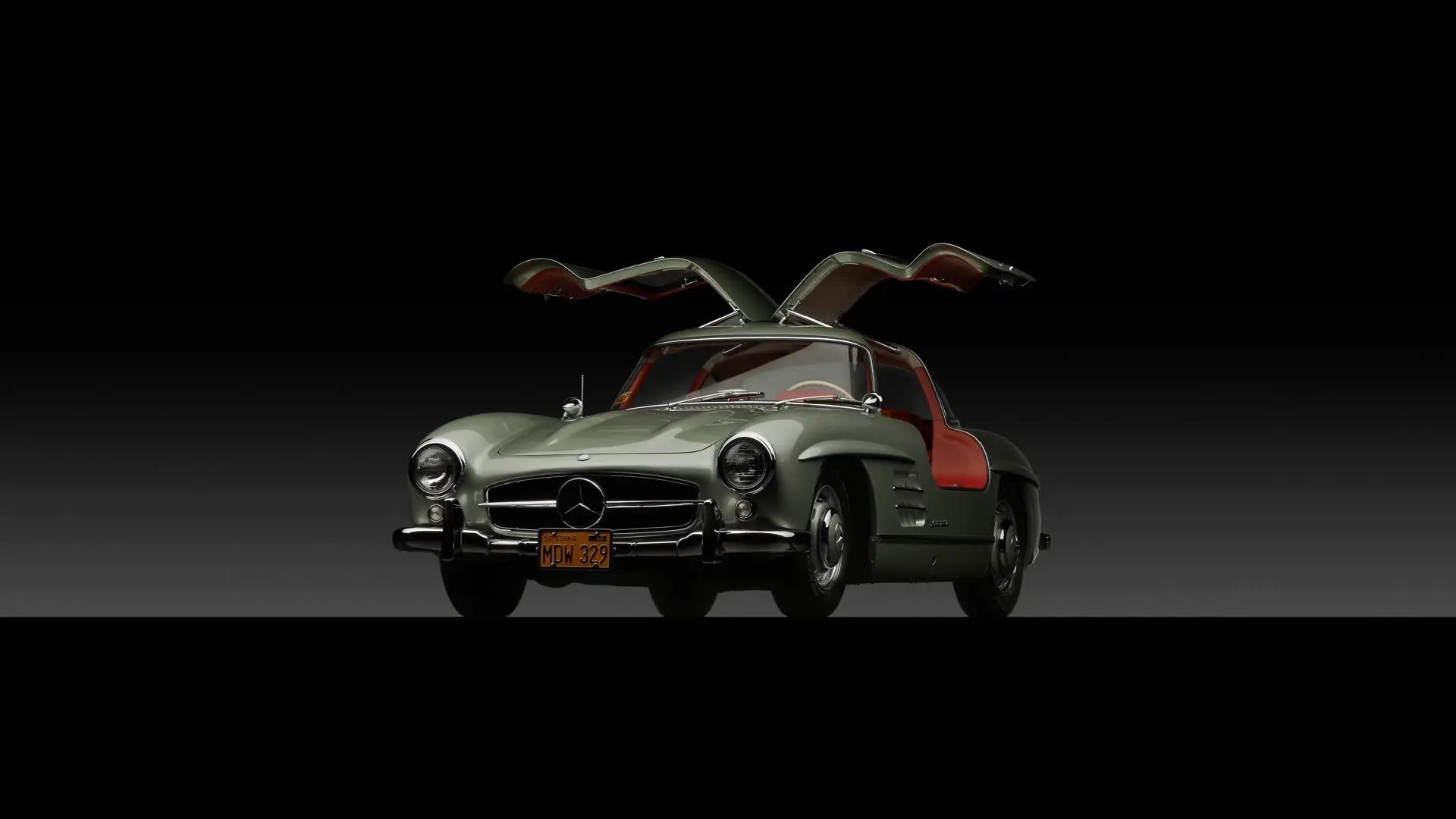
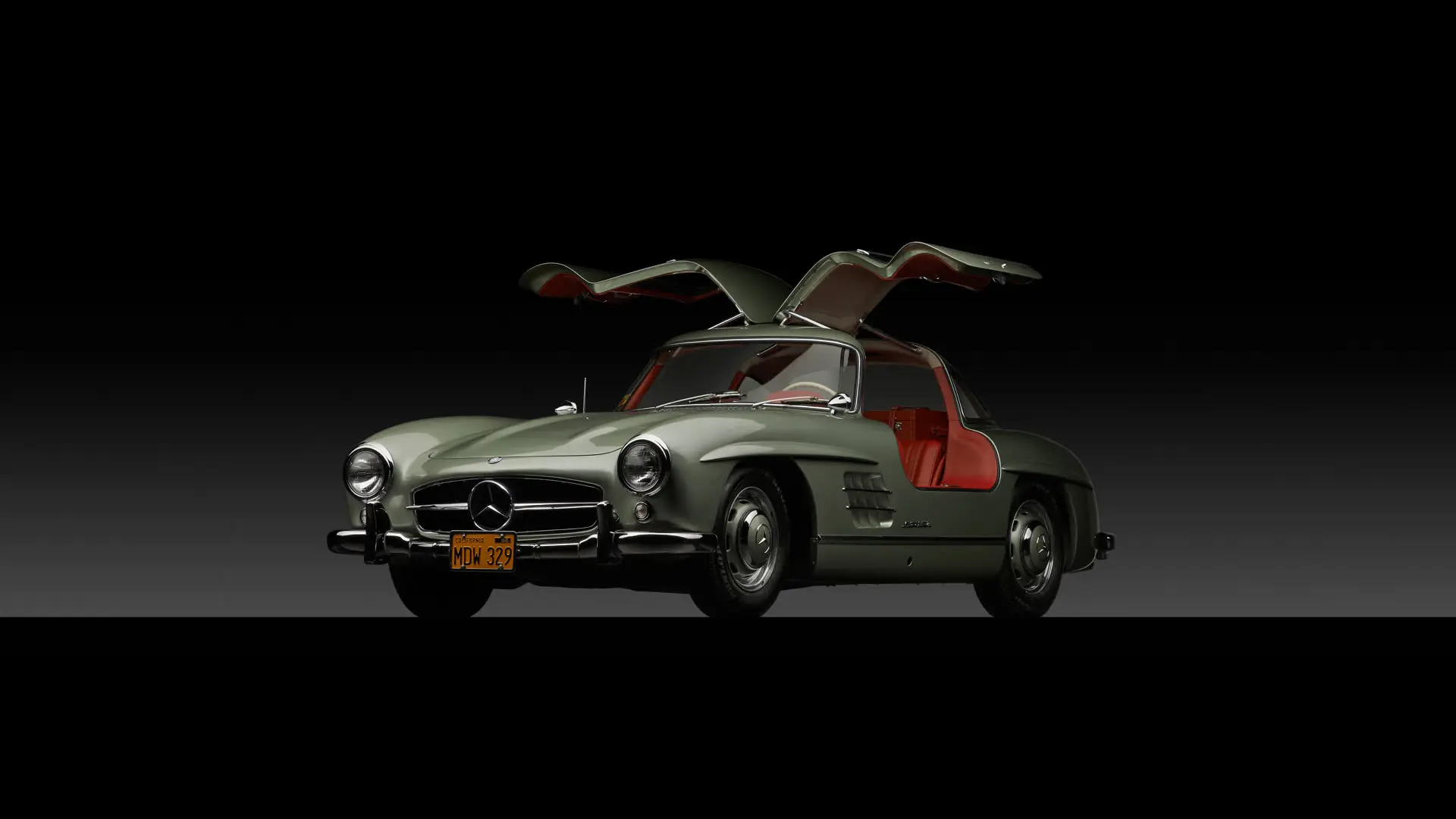
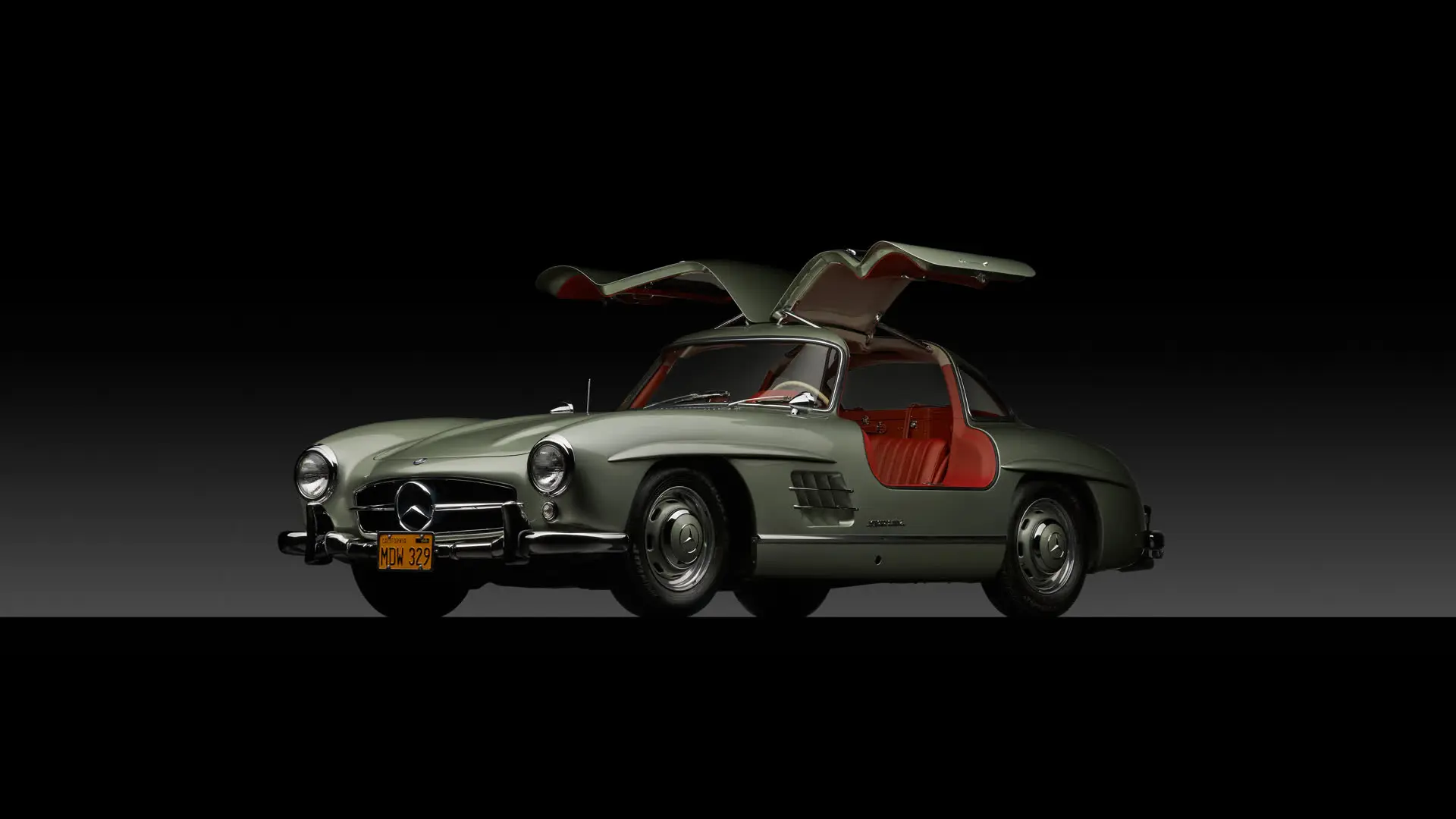
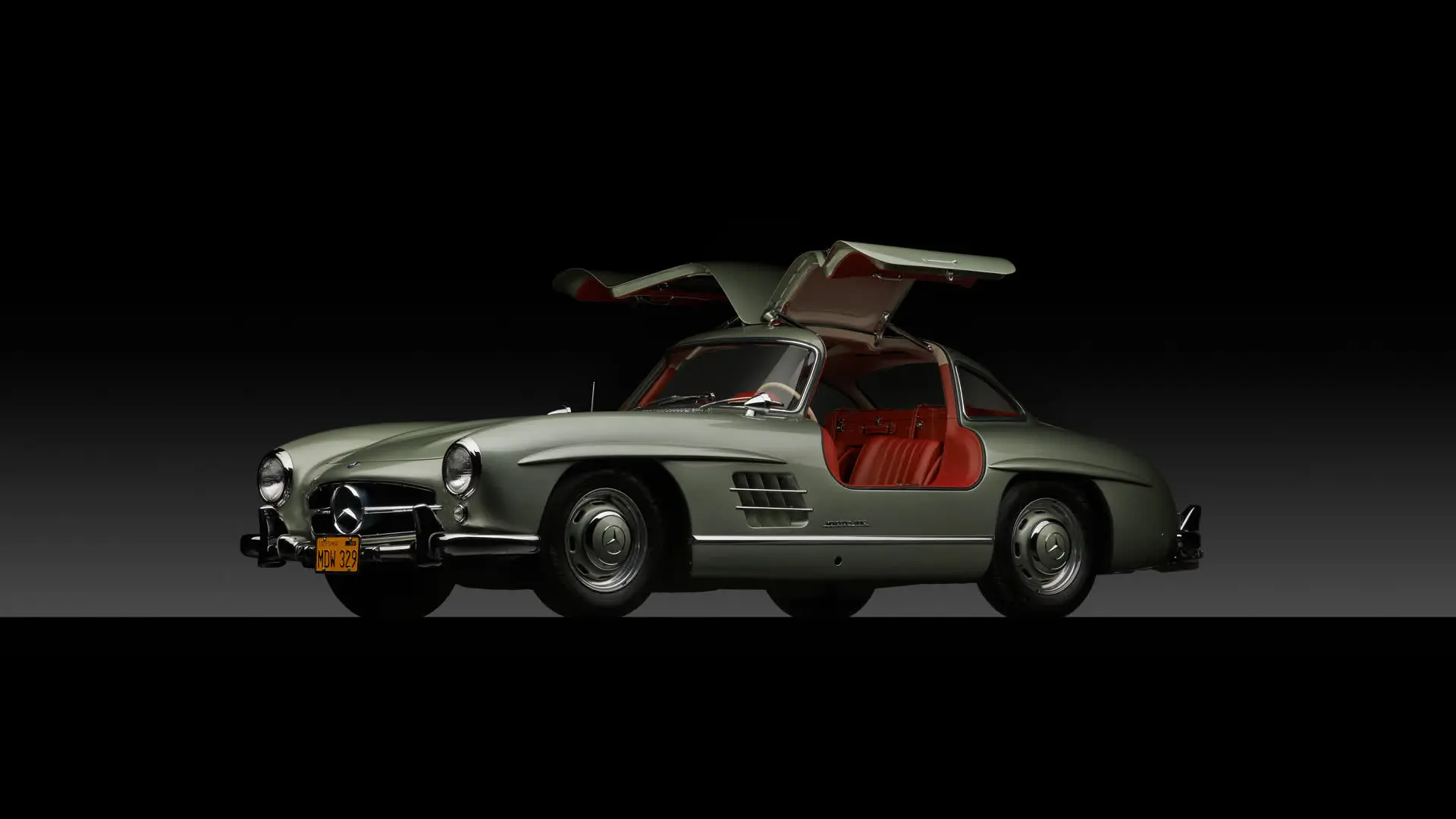
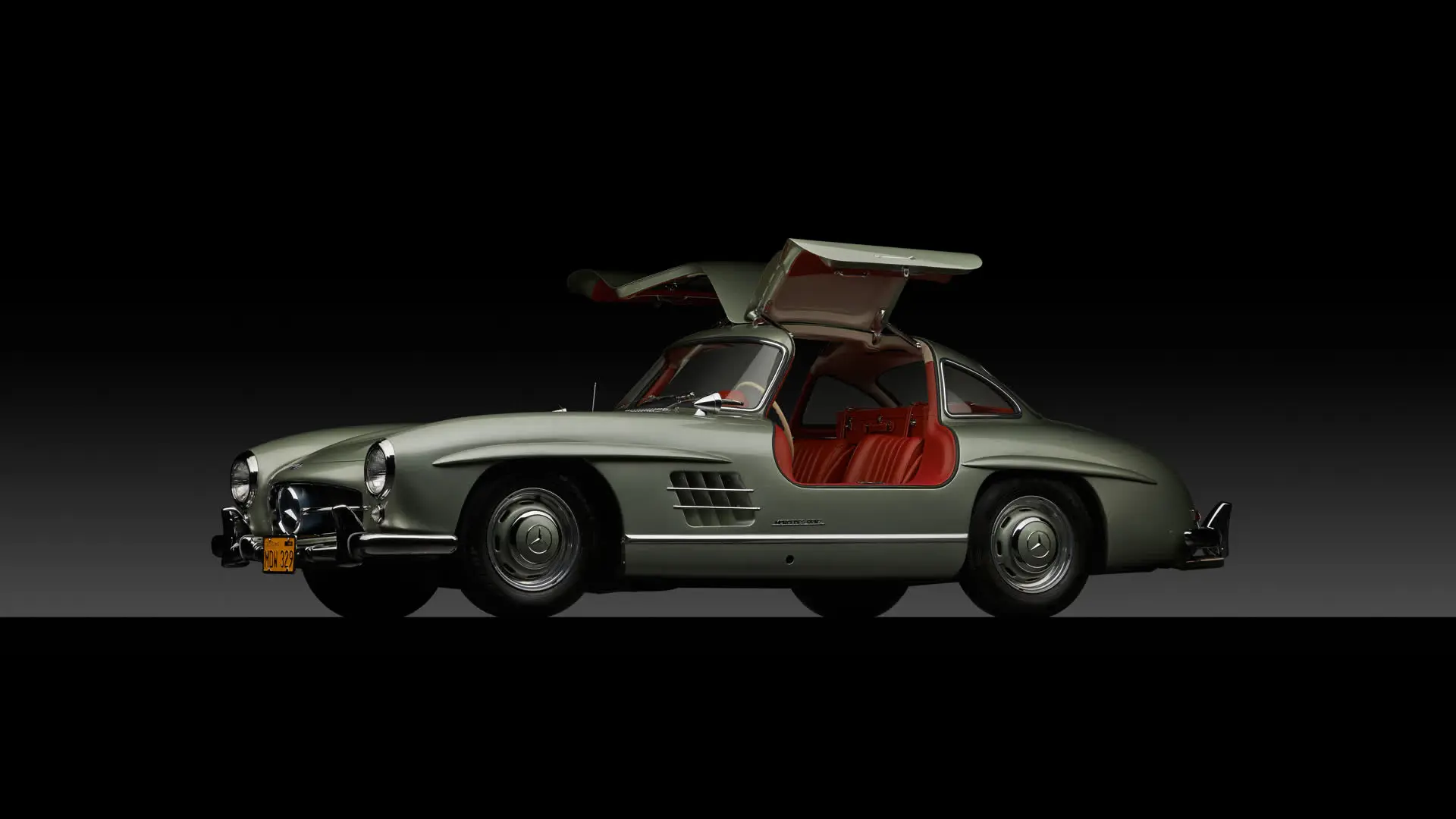
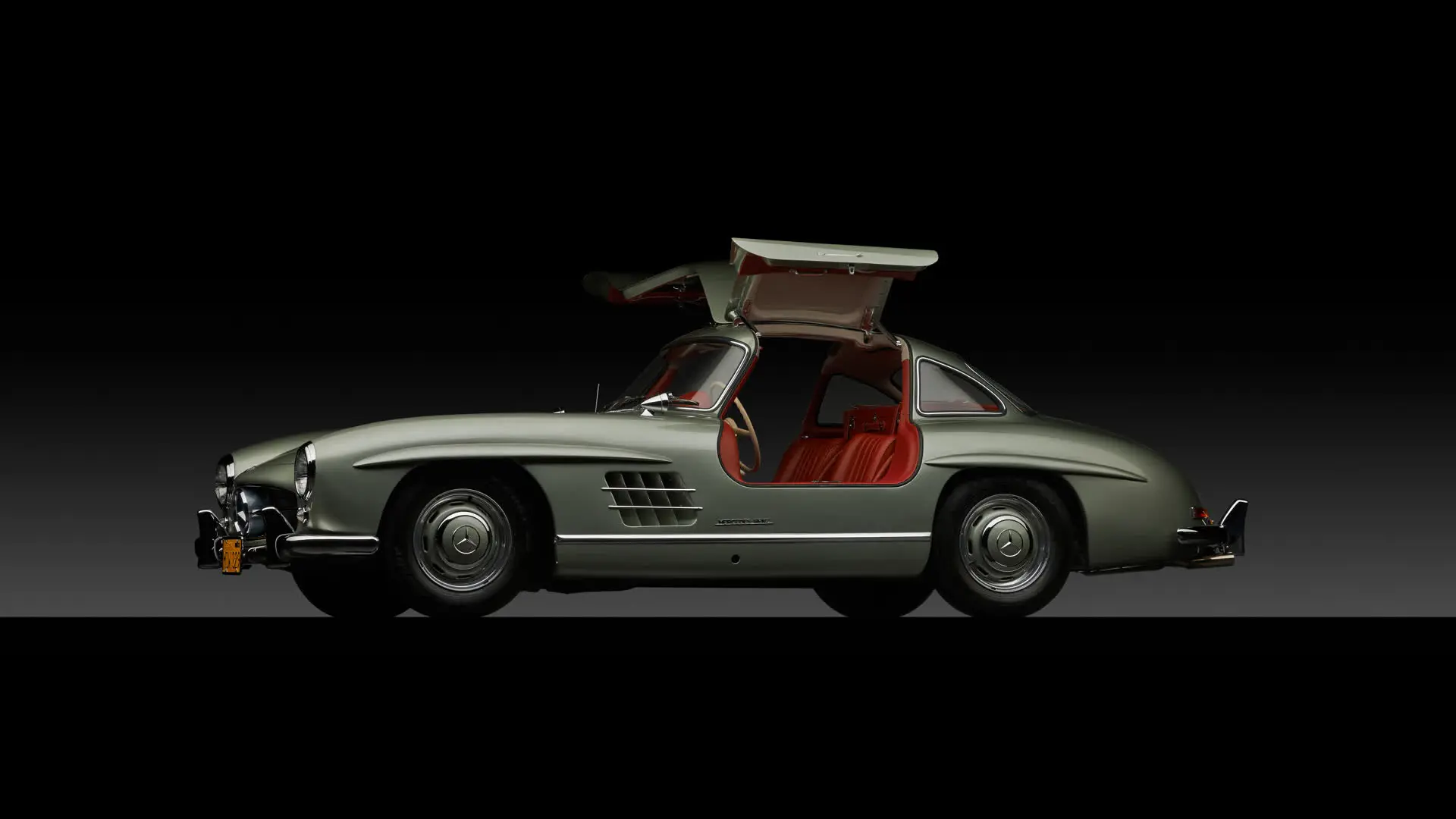
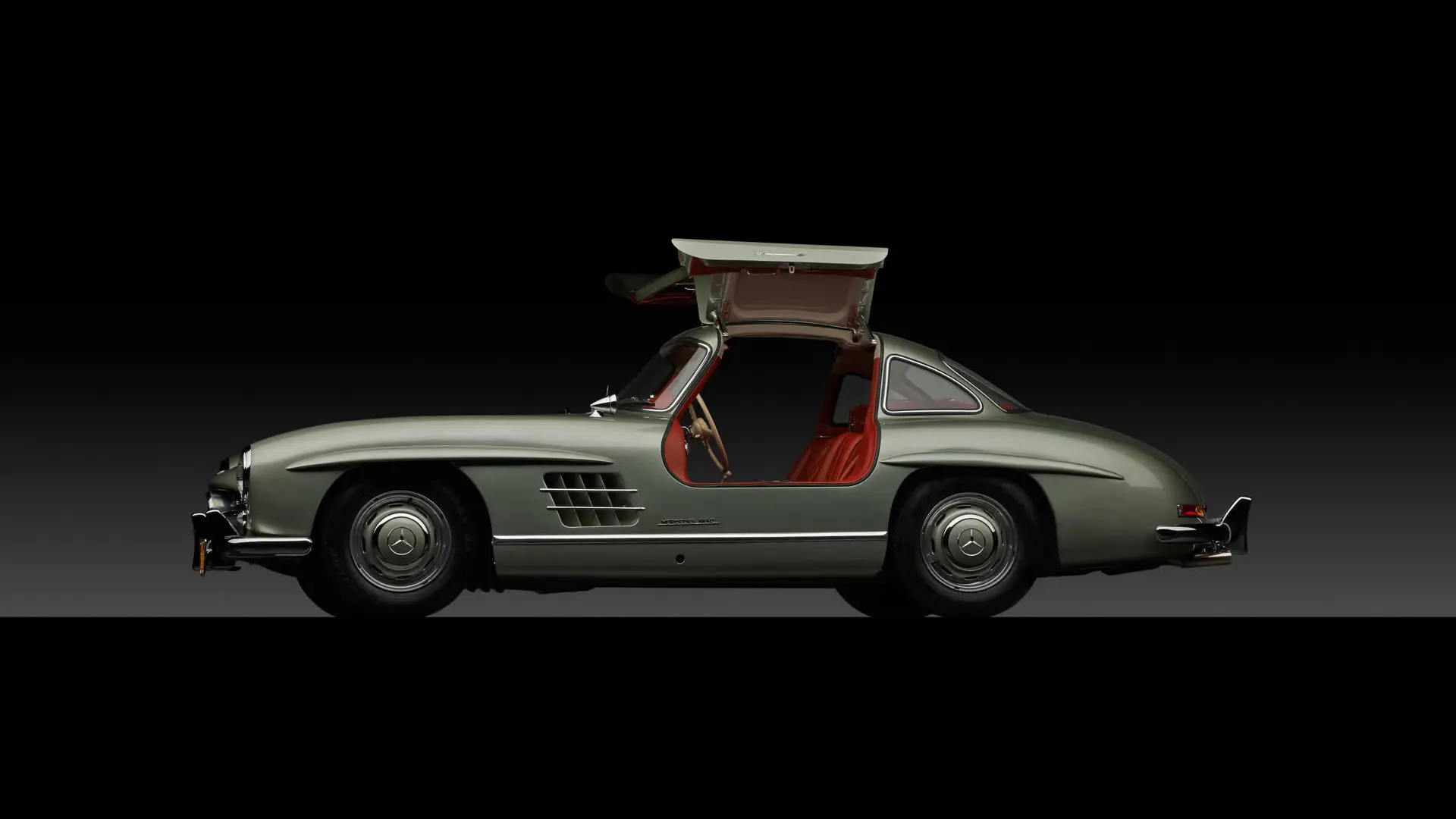

 | New York, New York
| New York, New York
